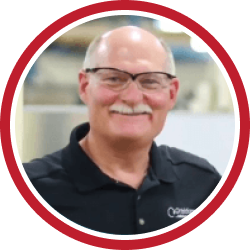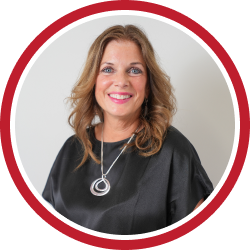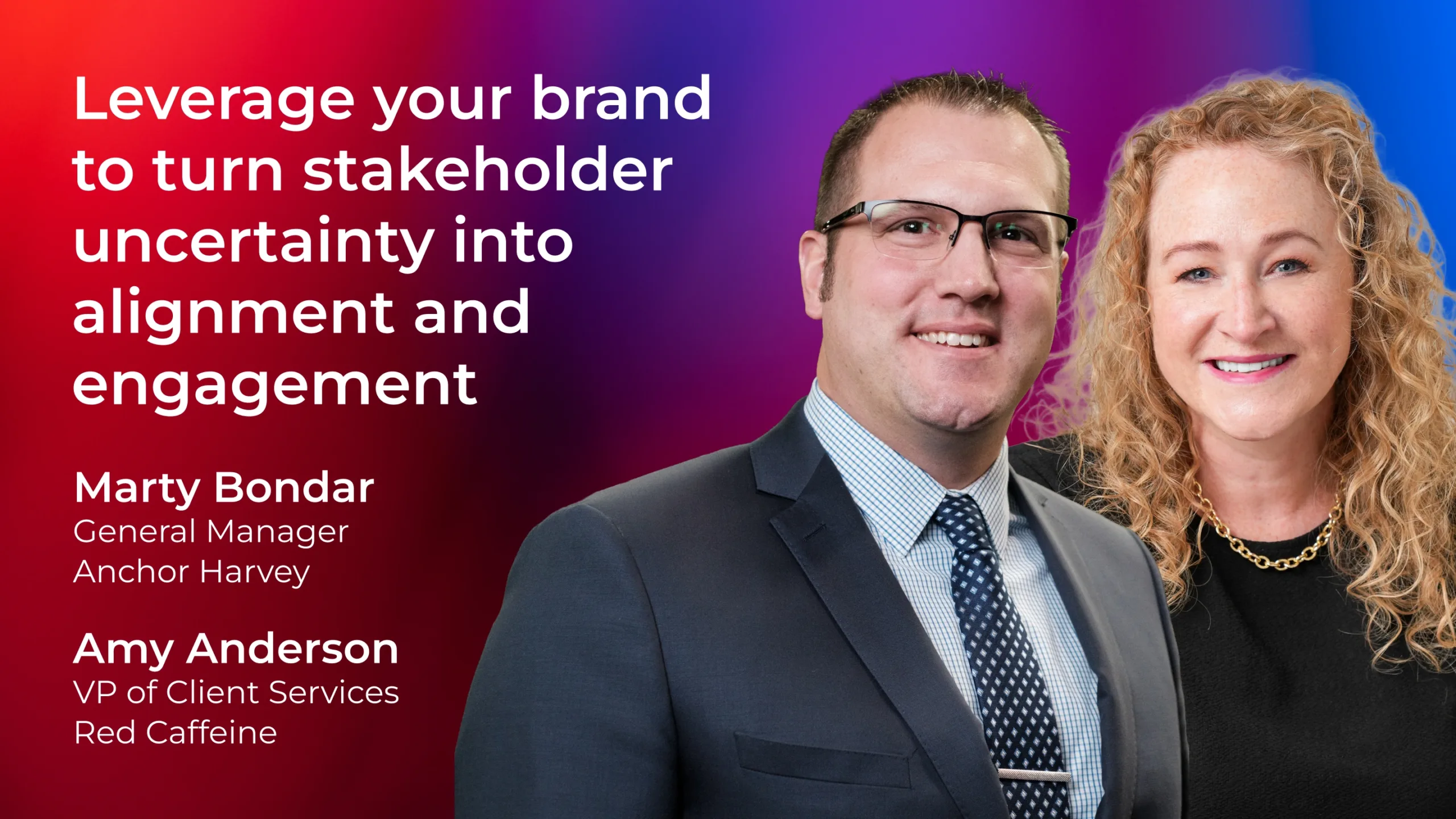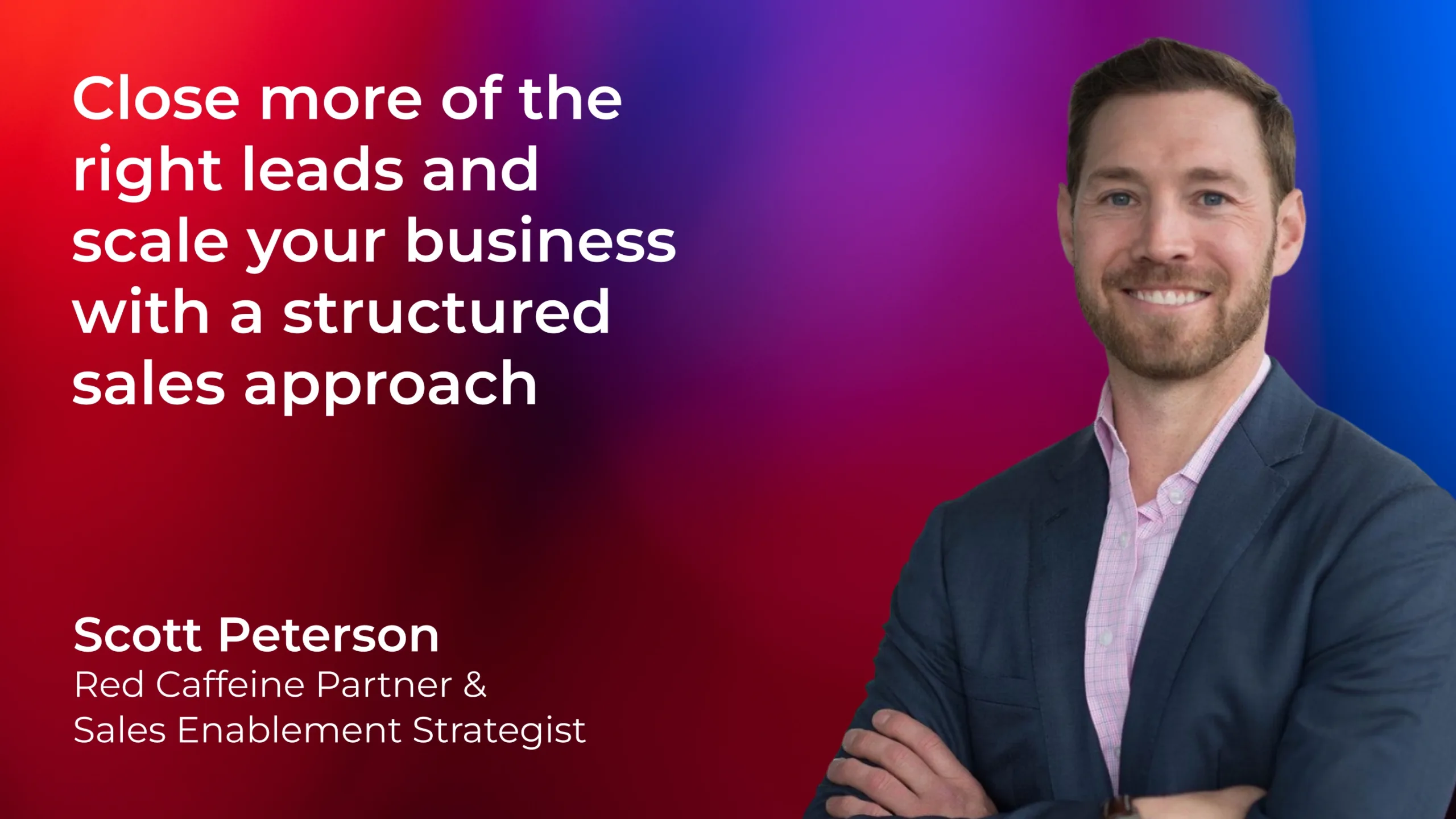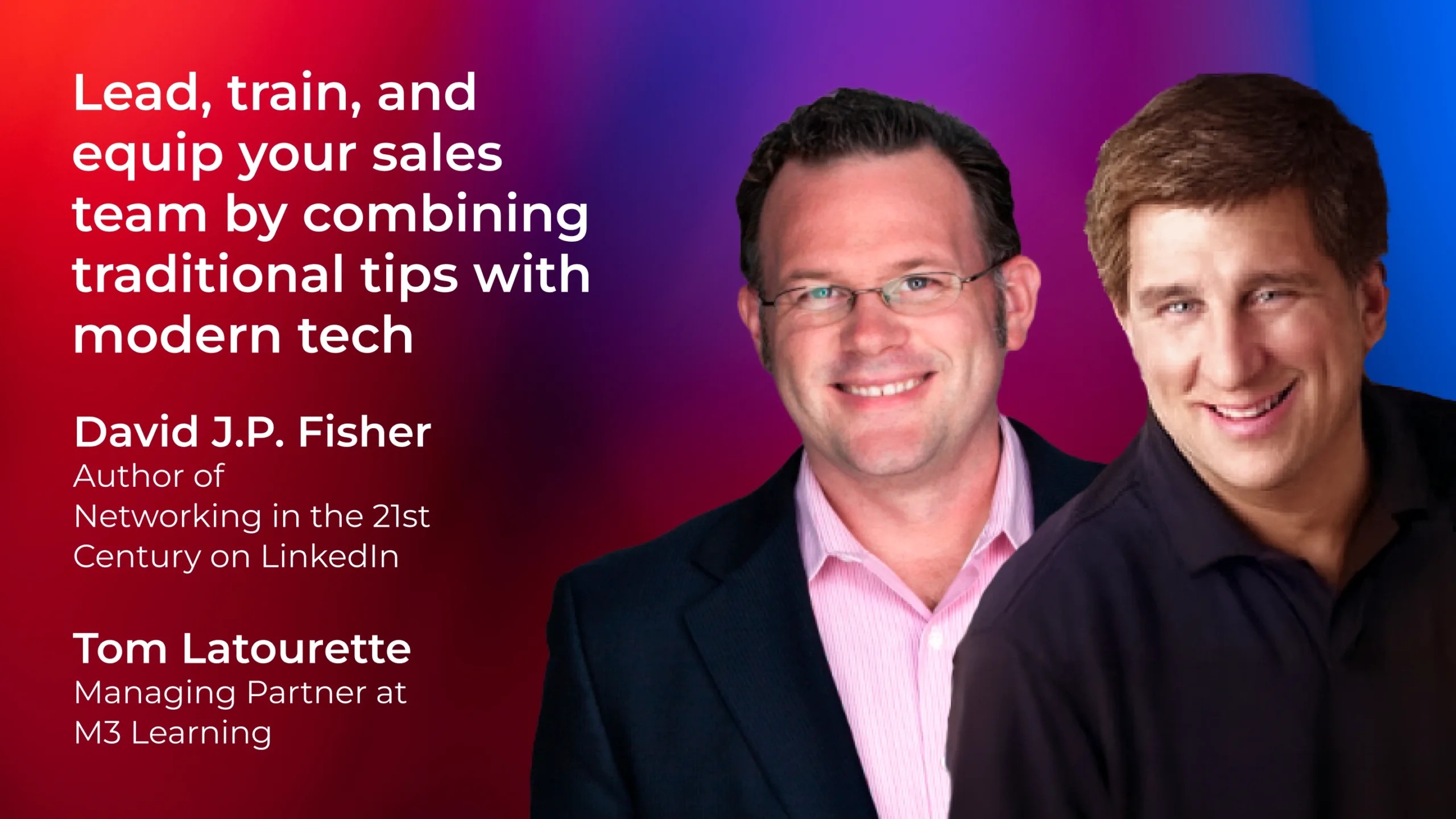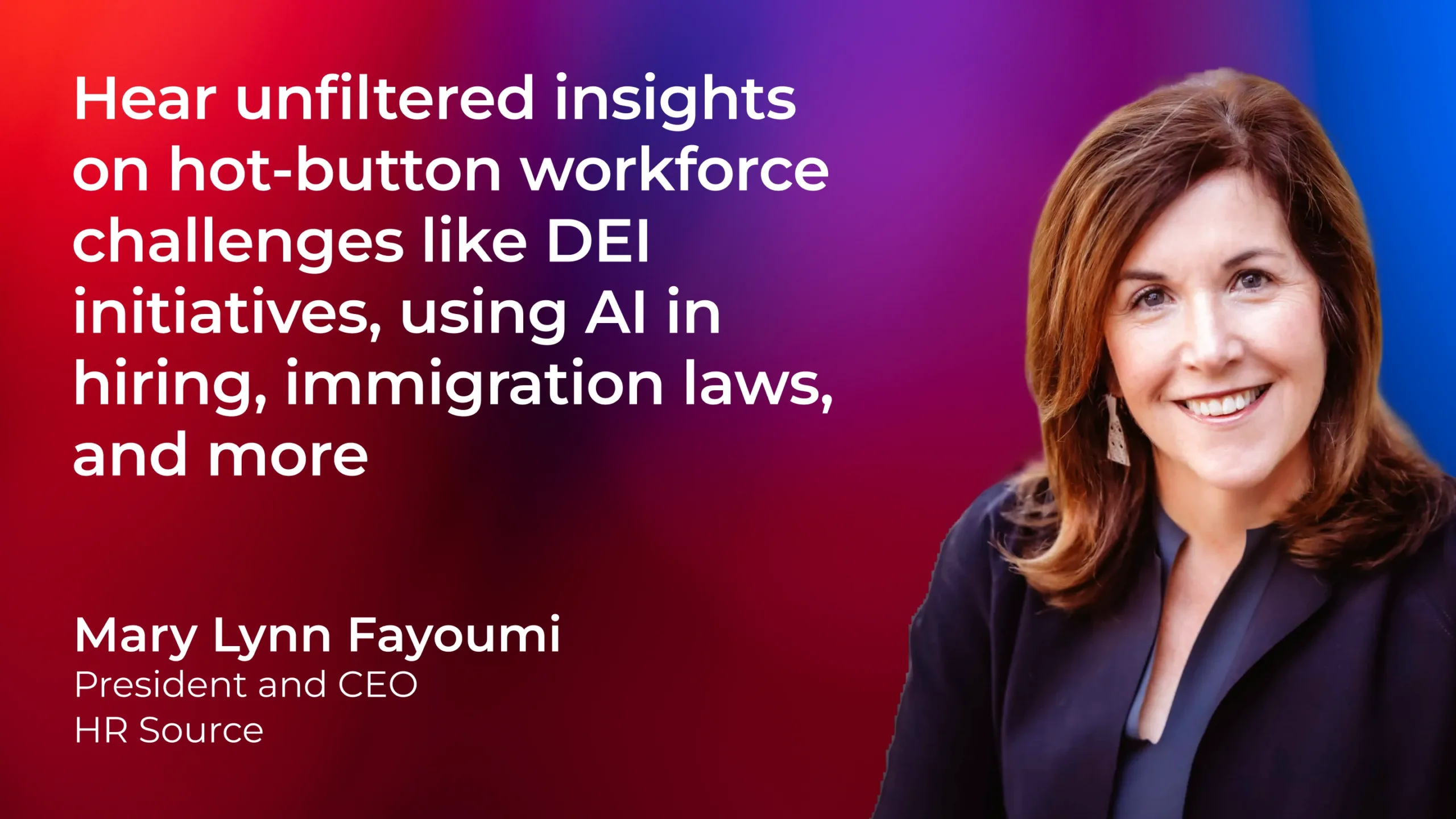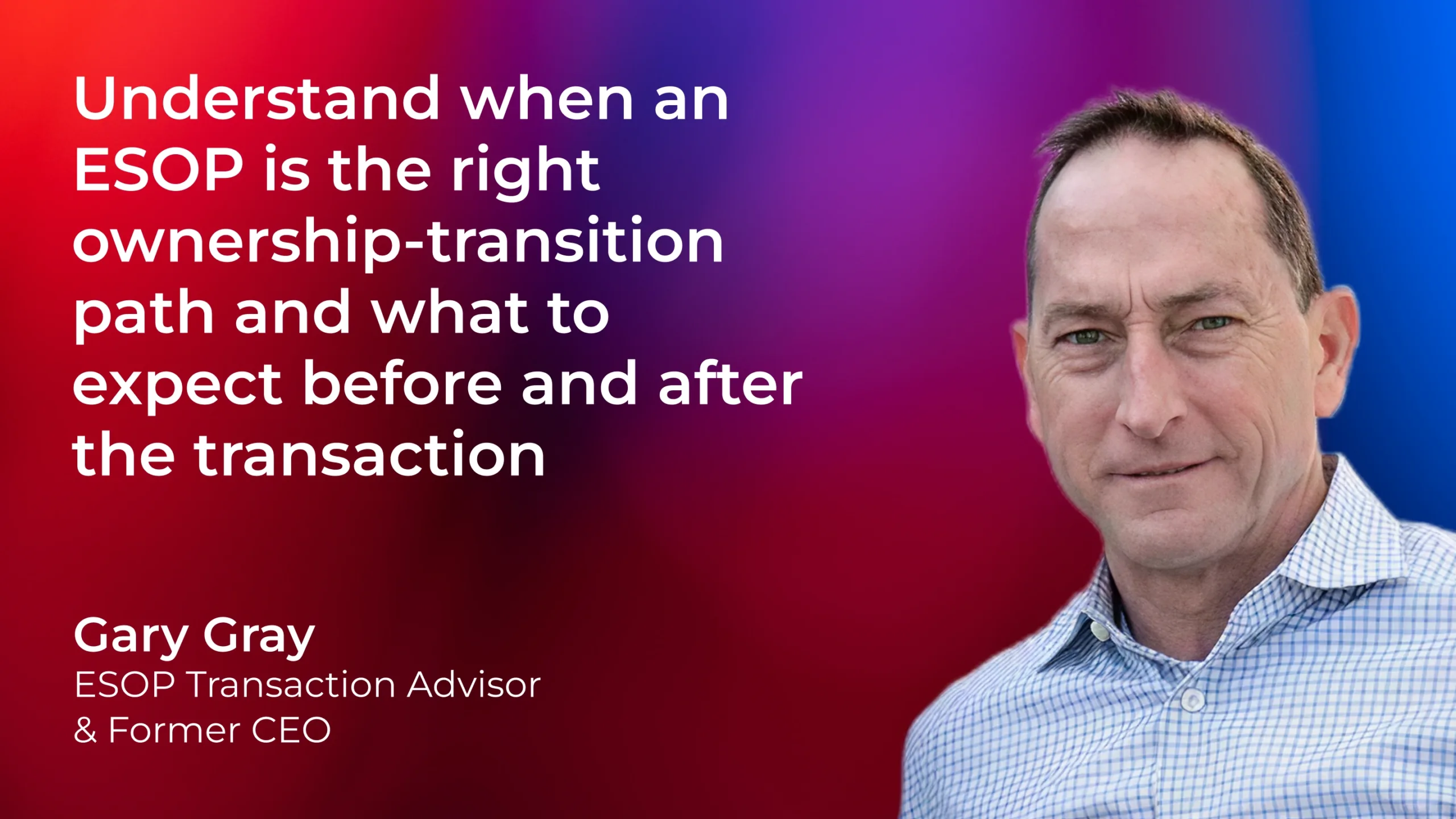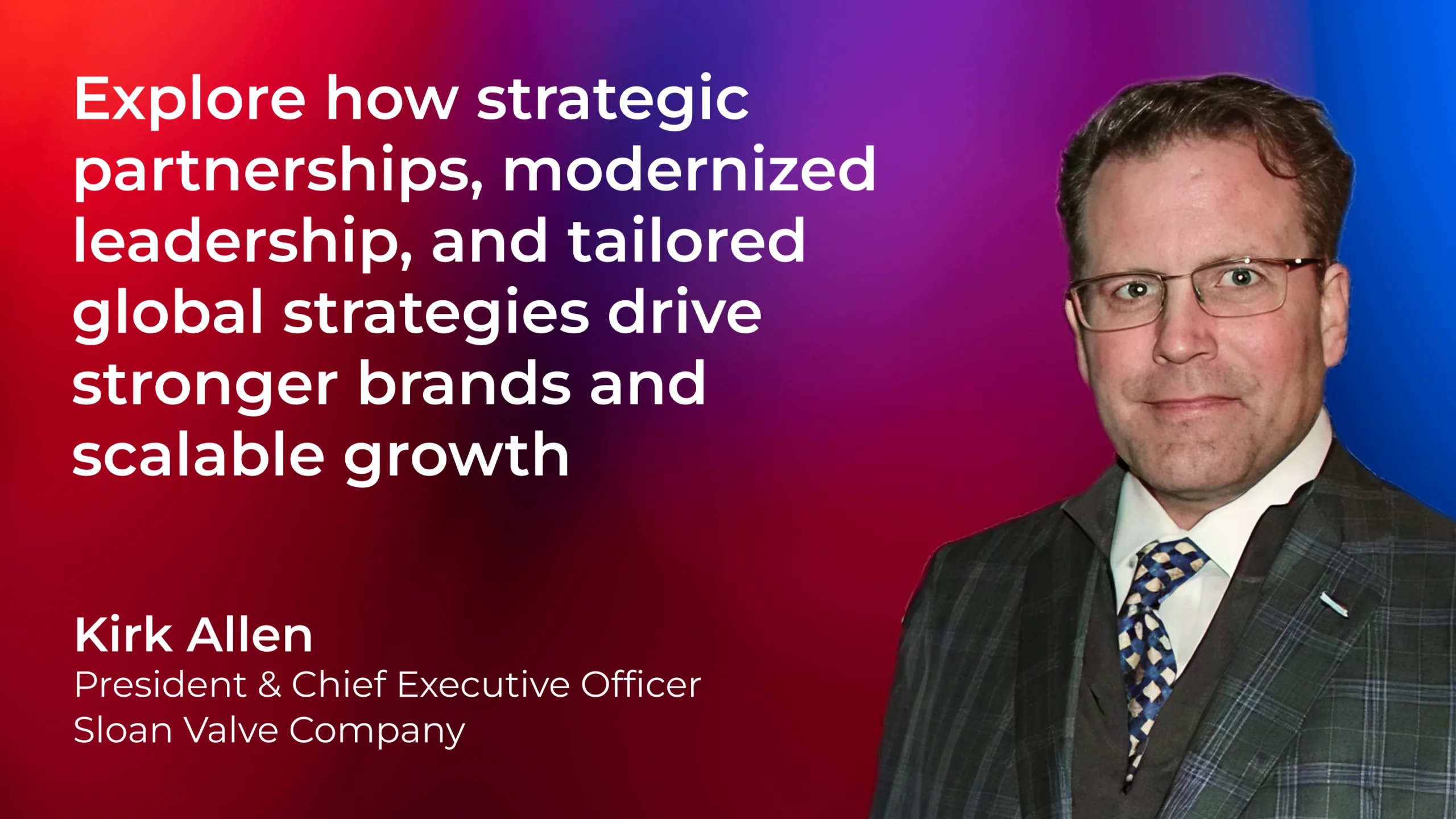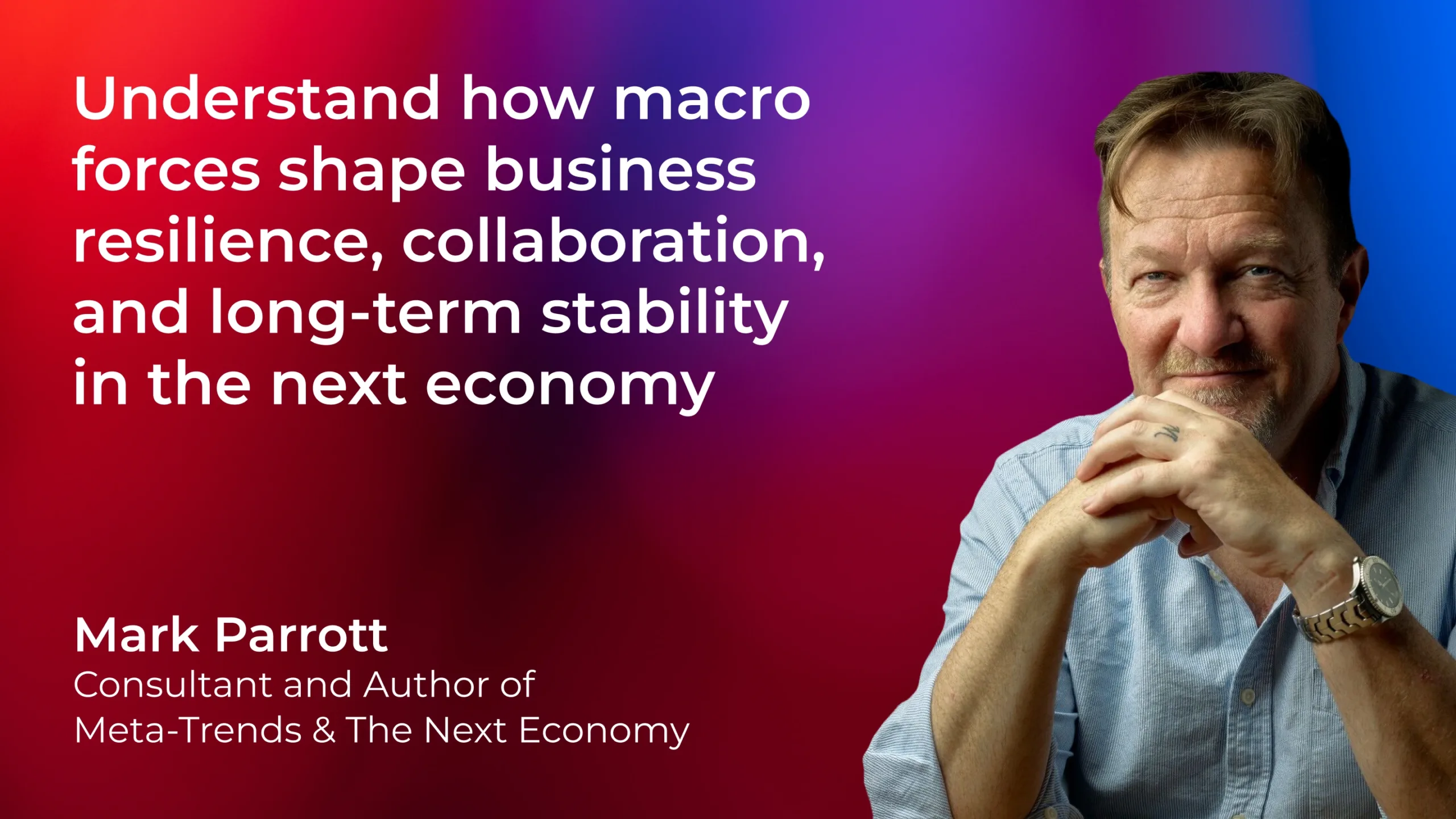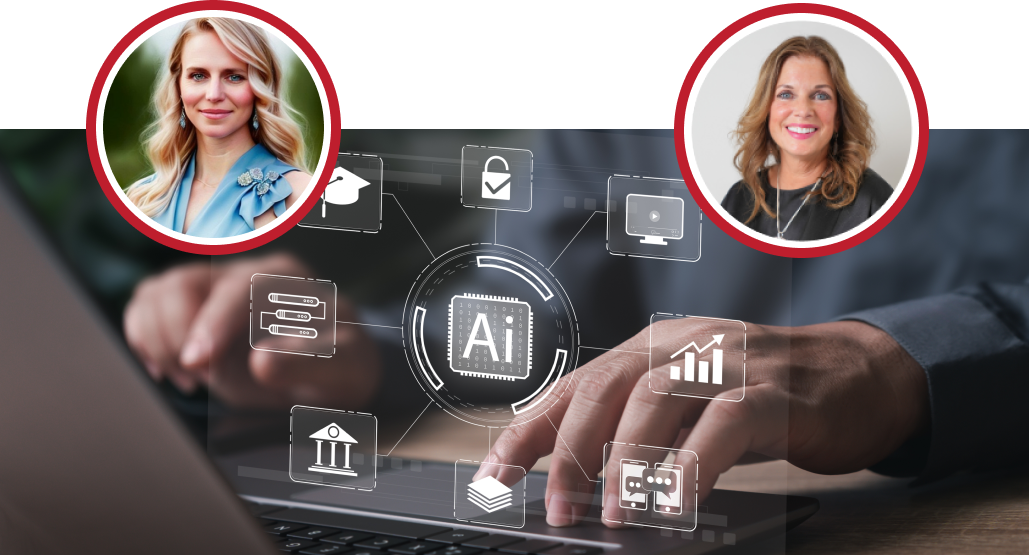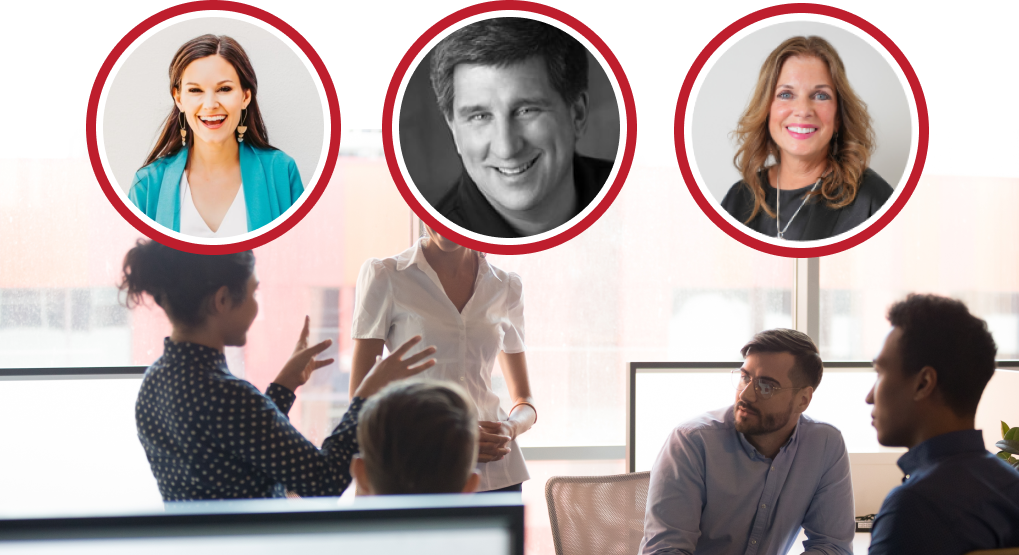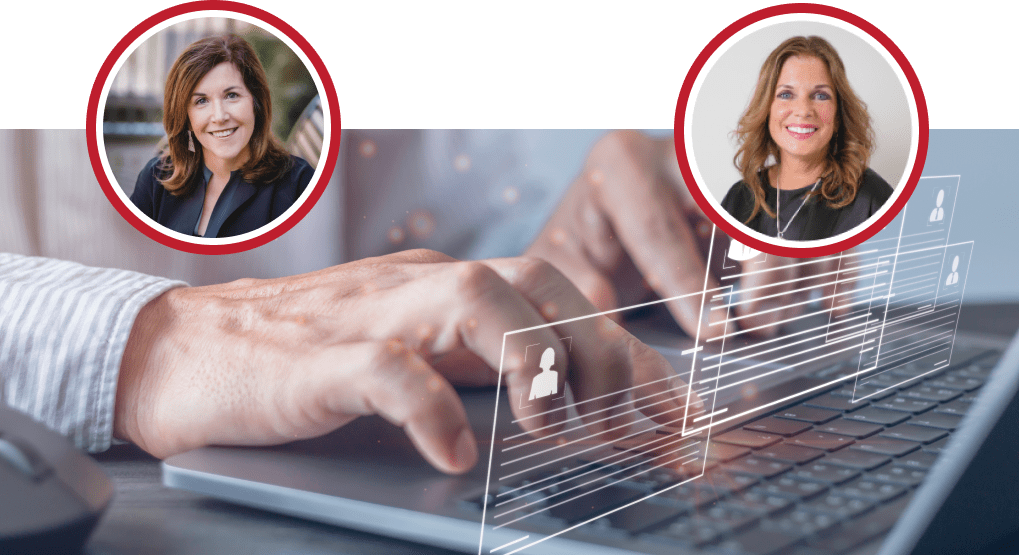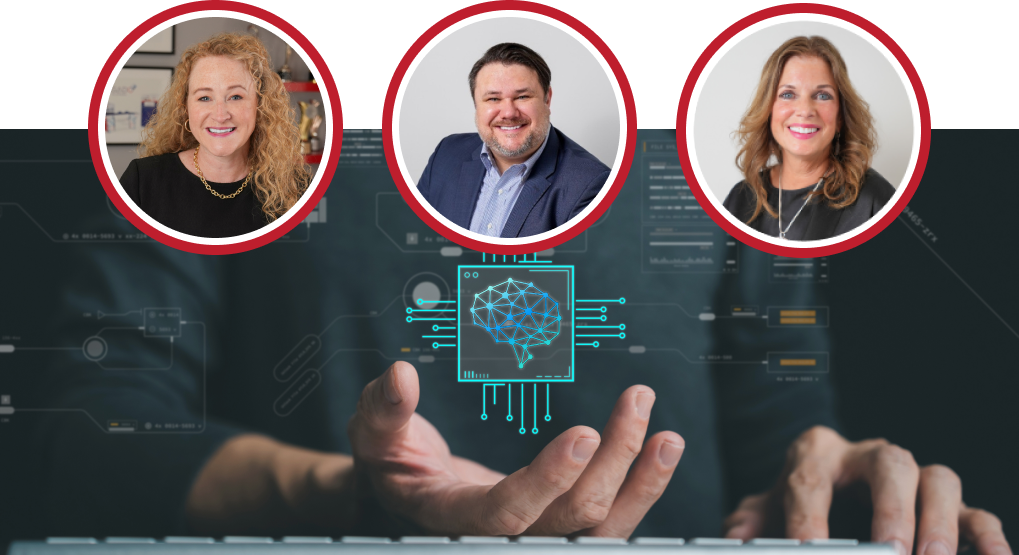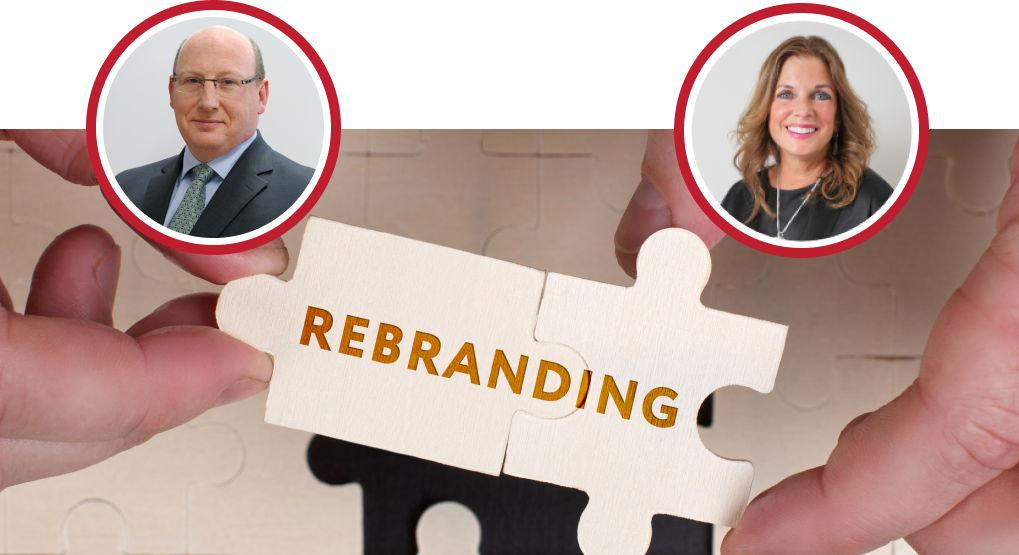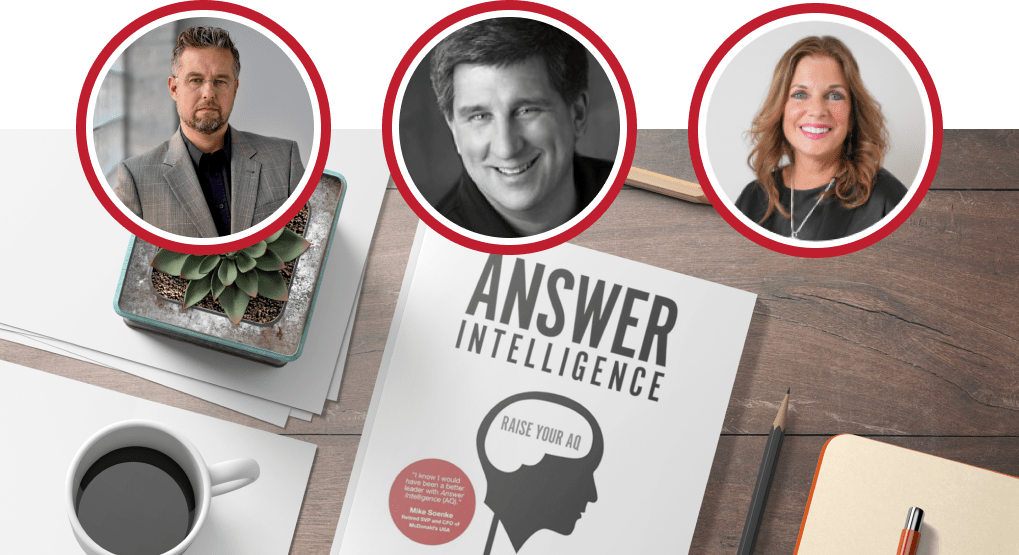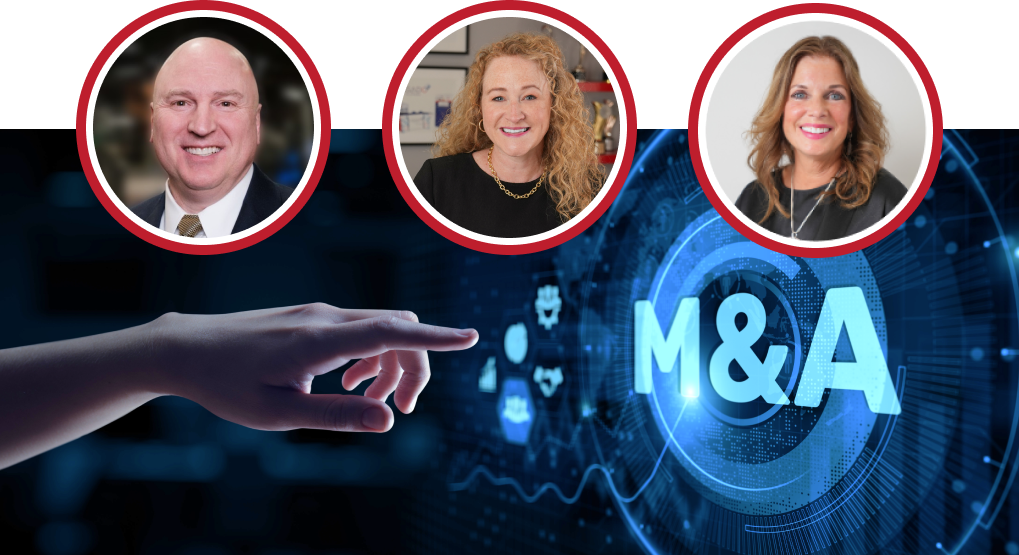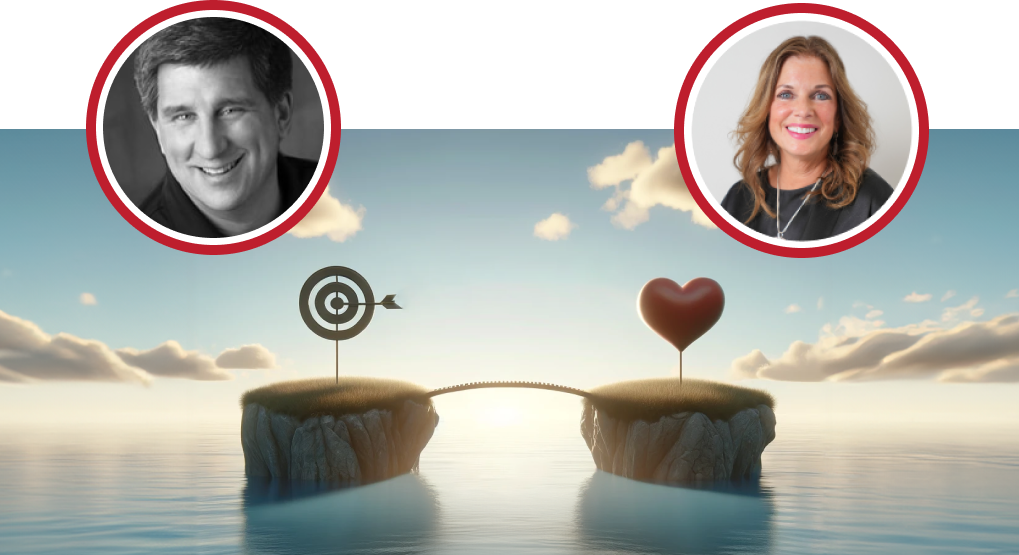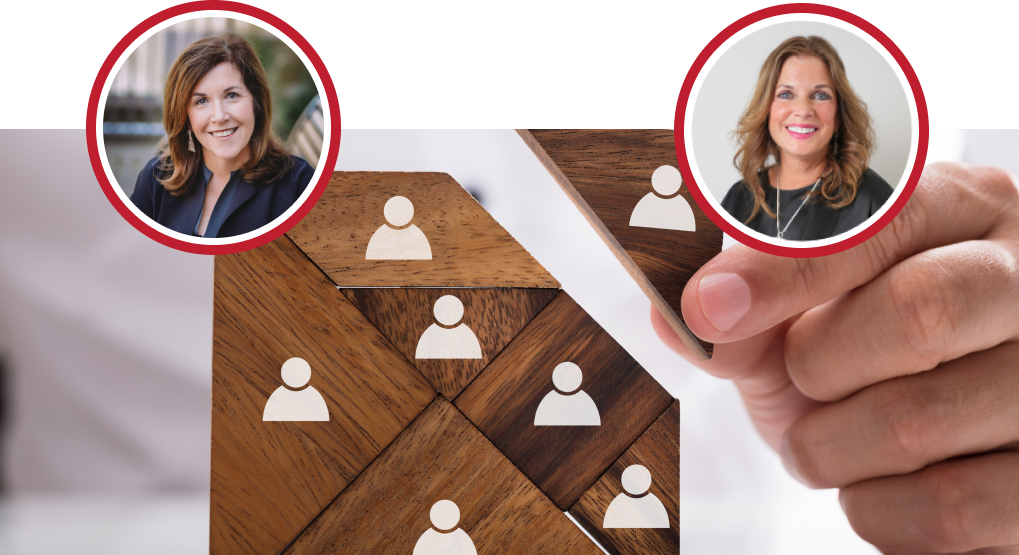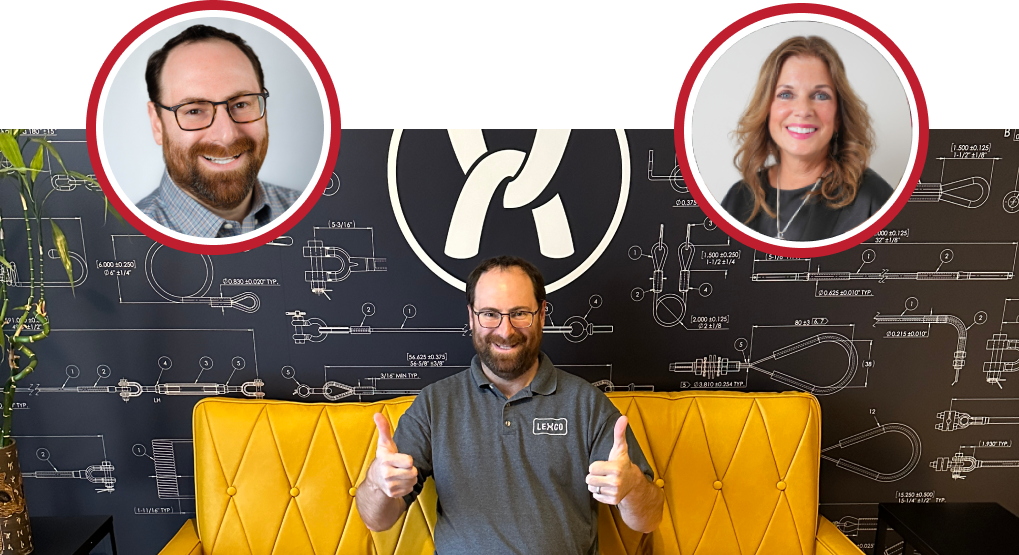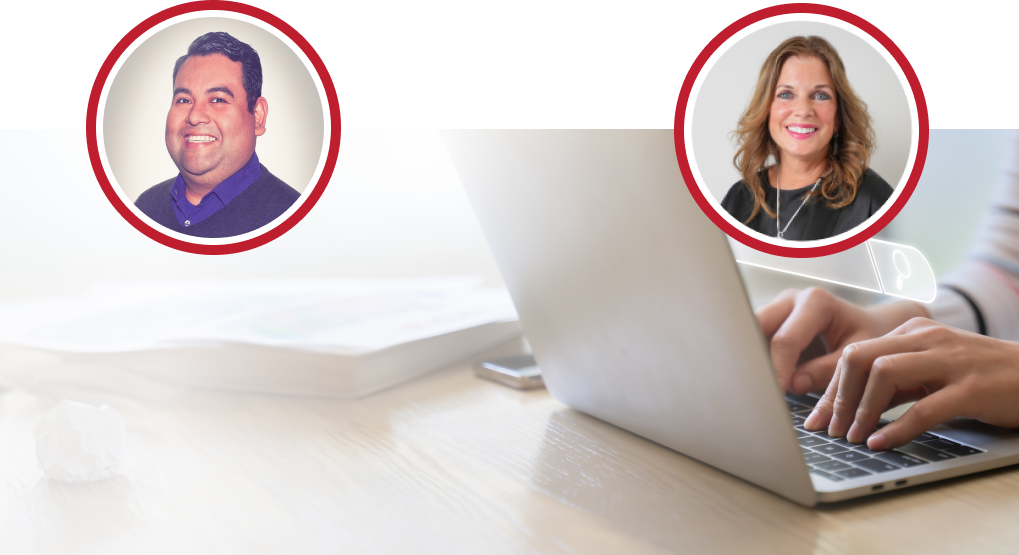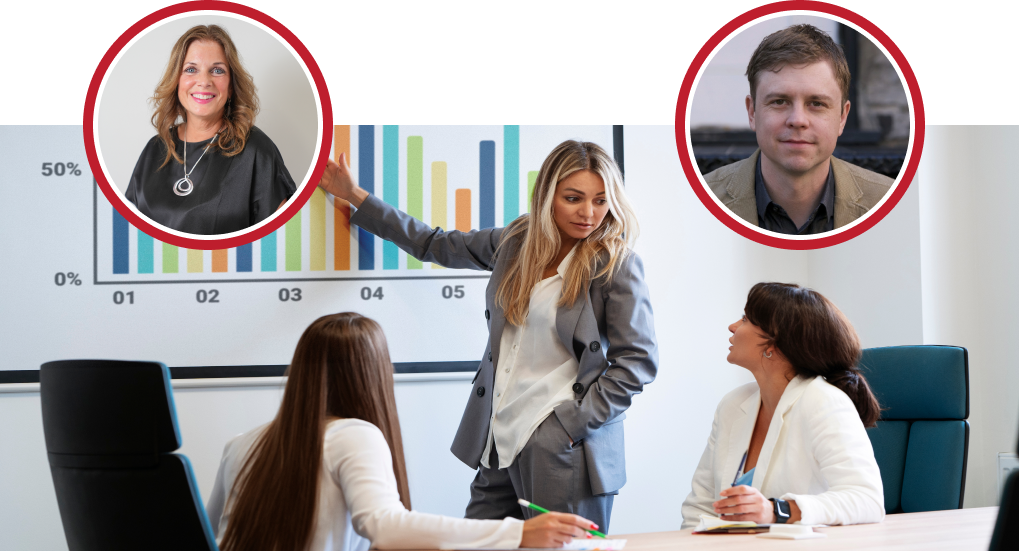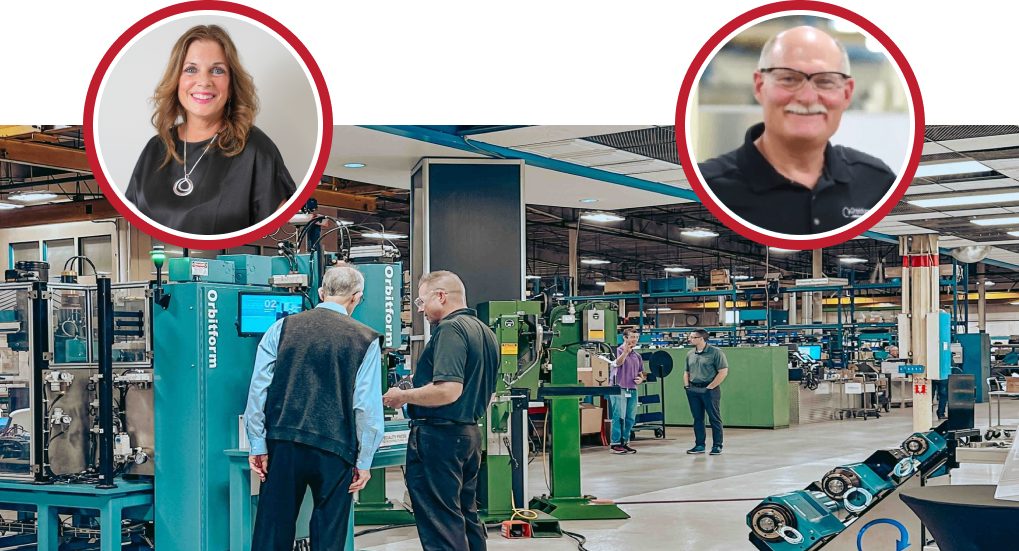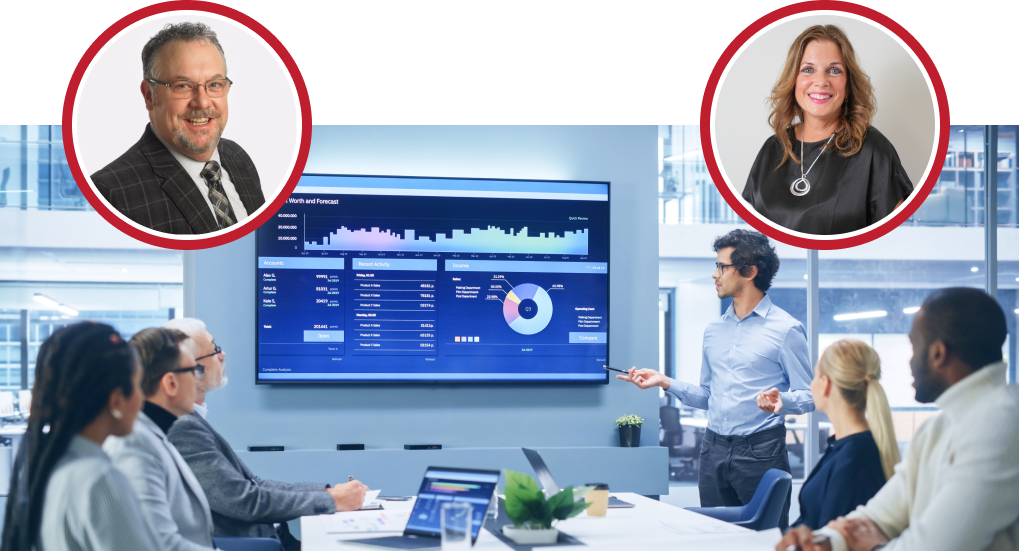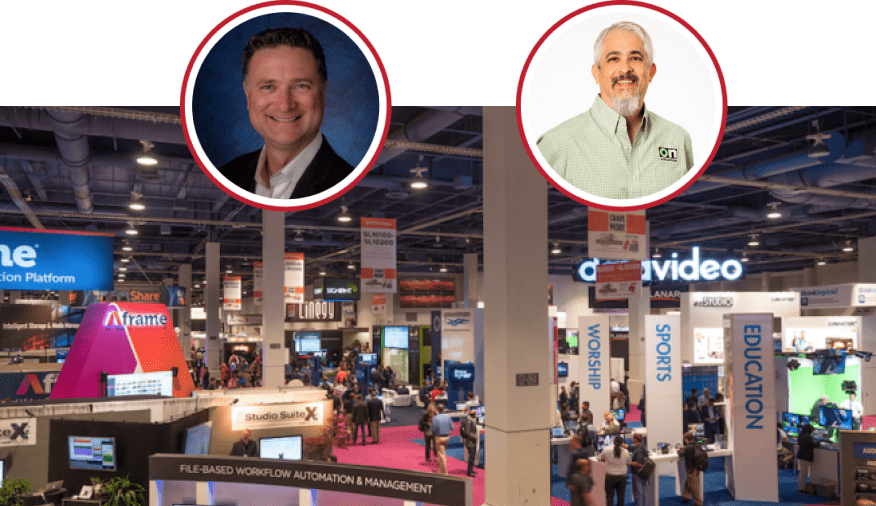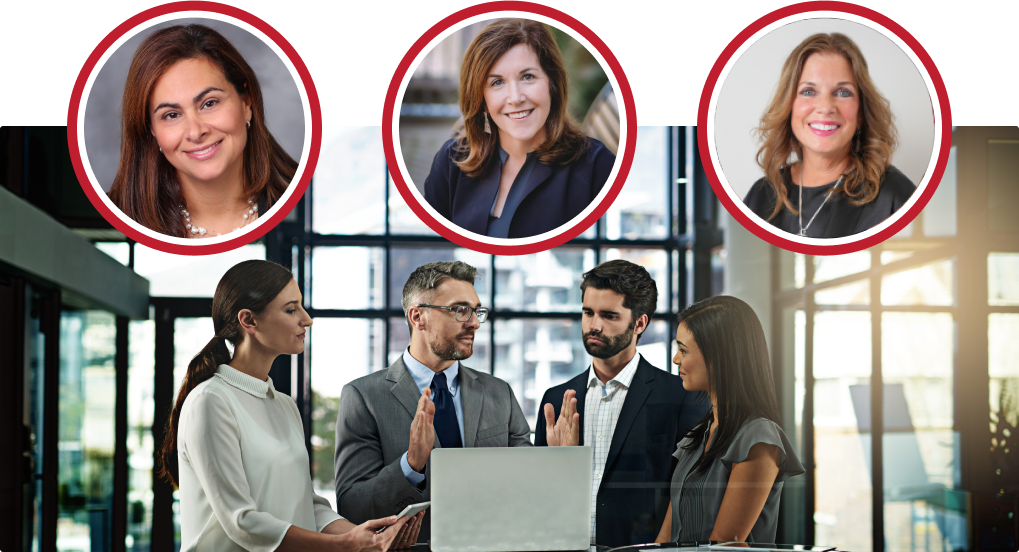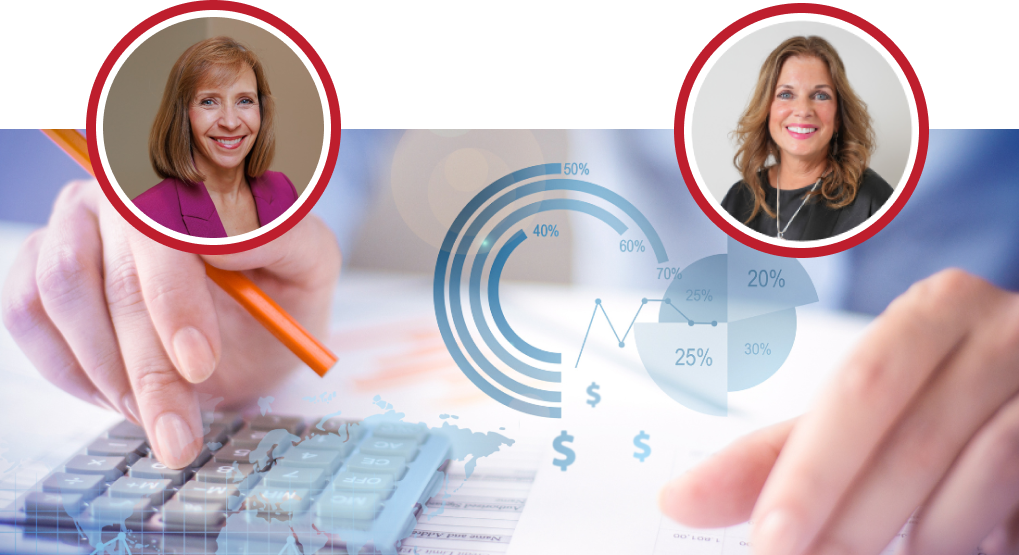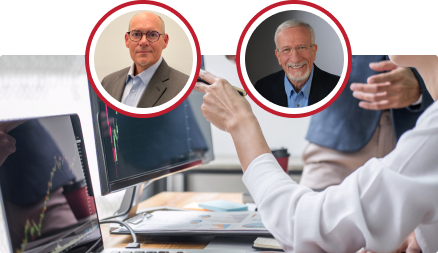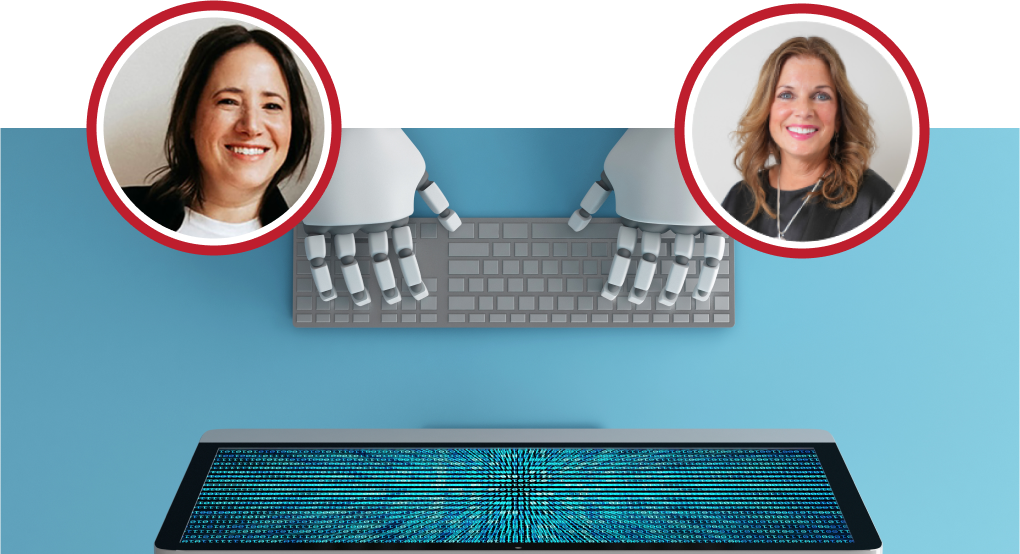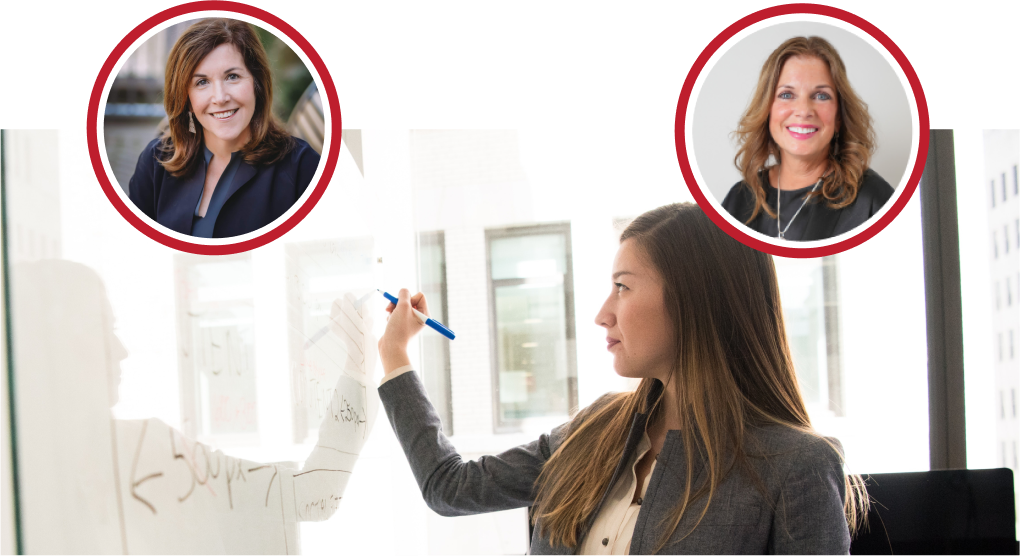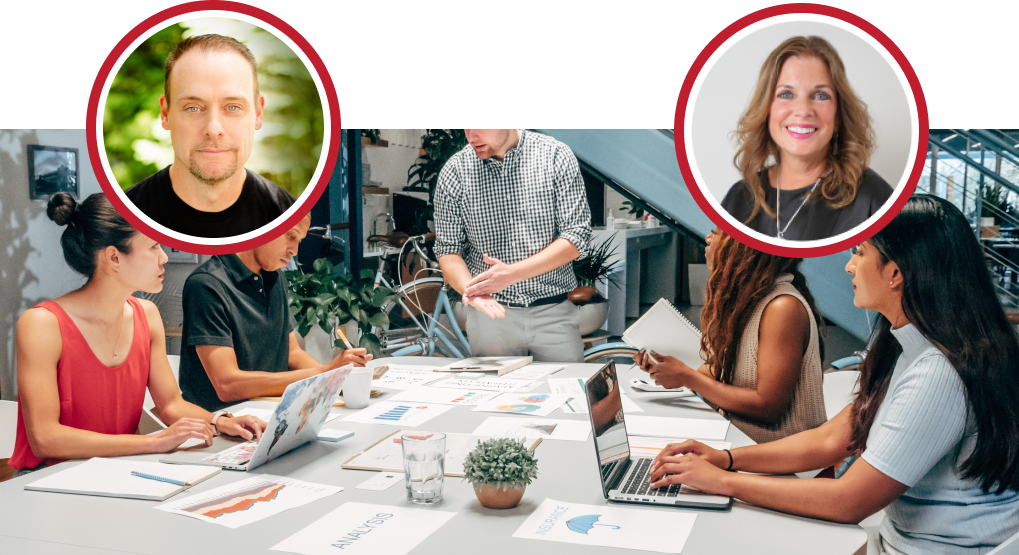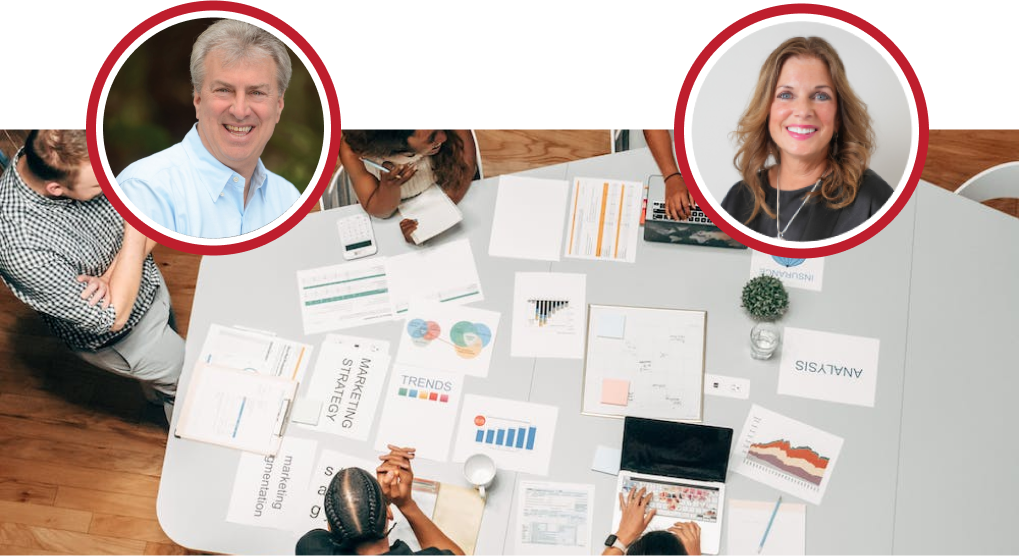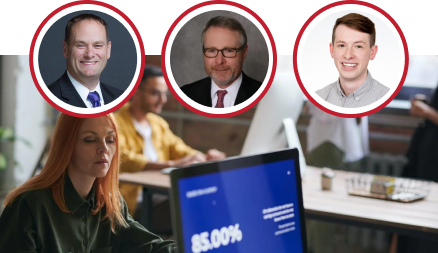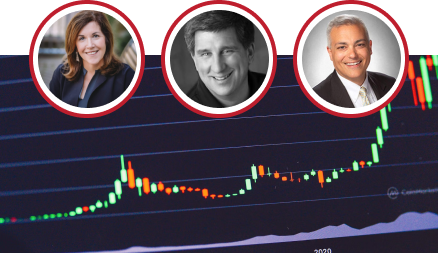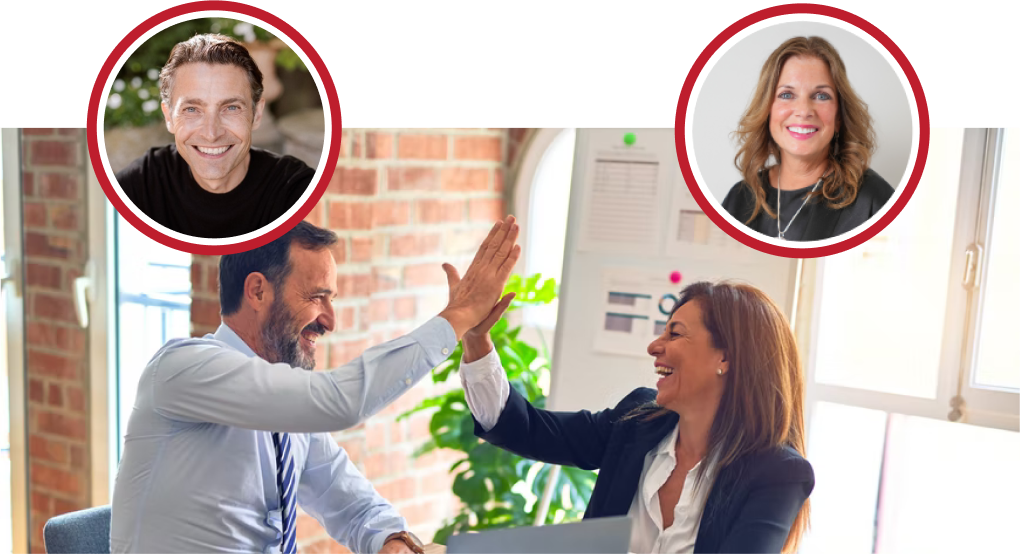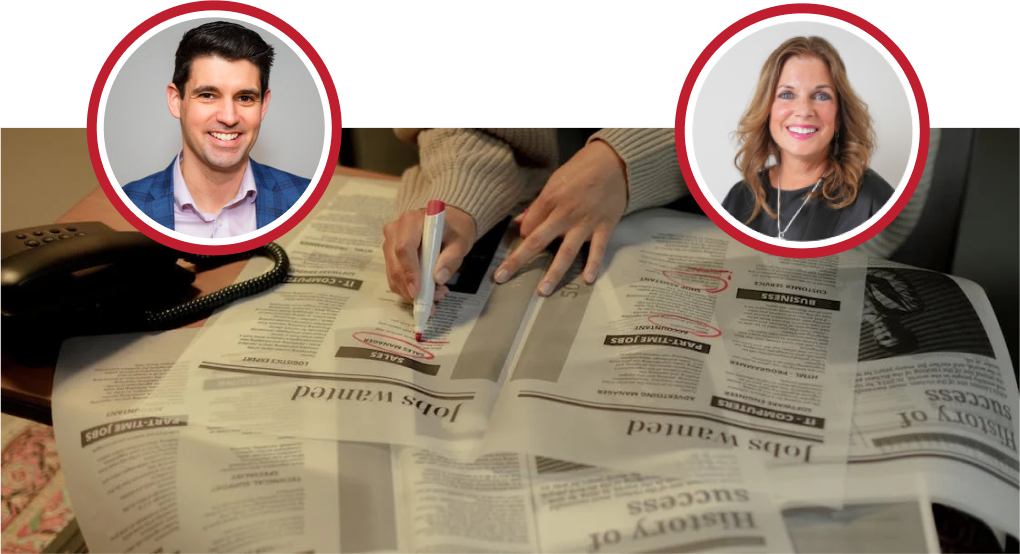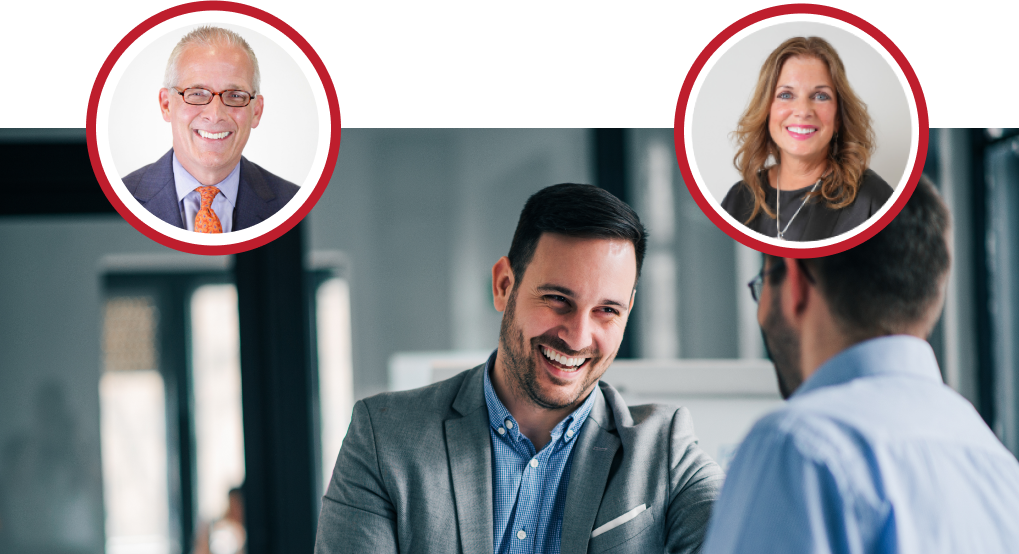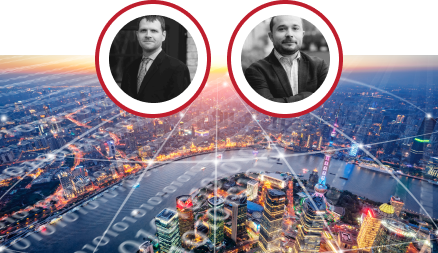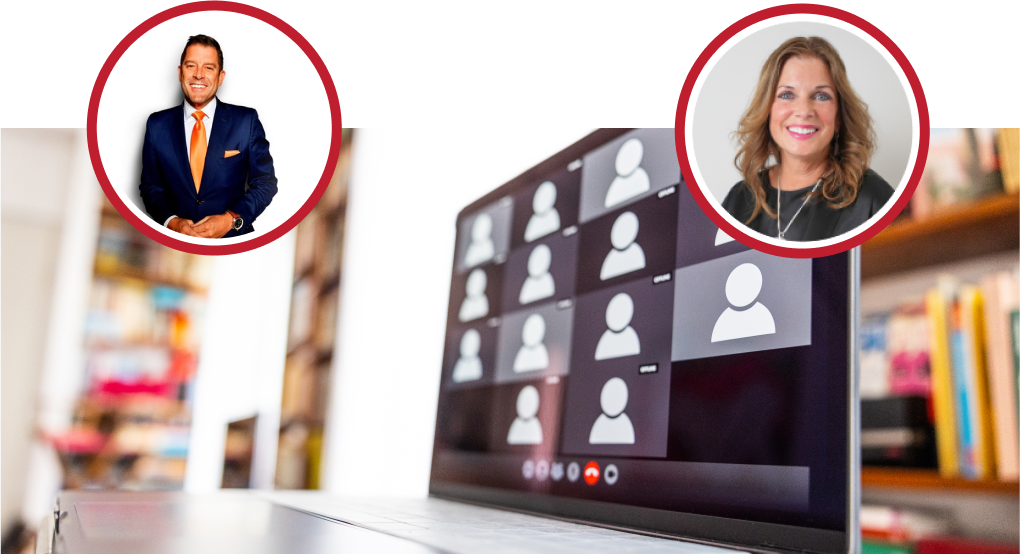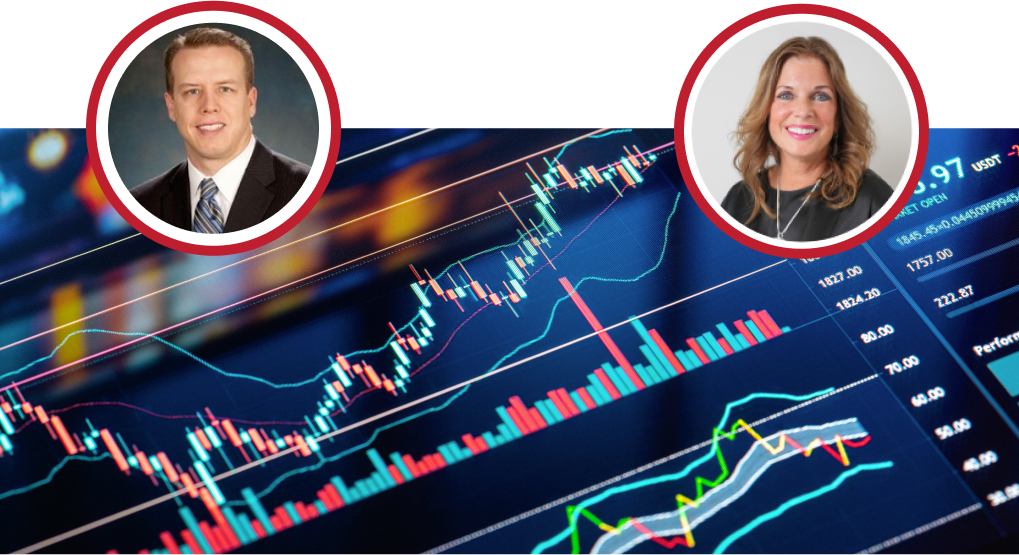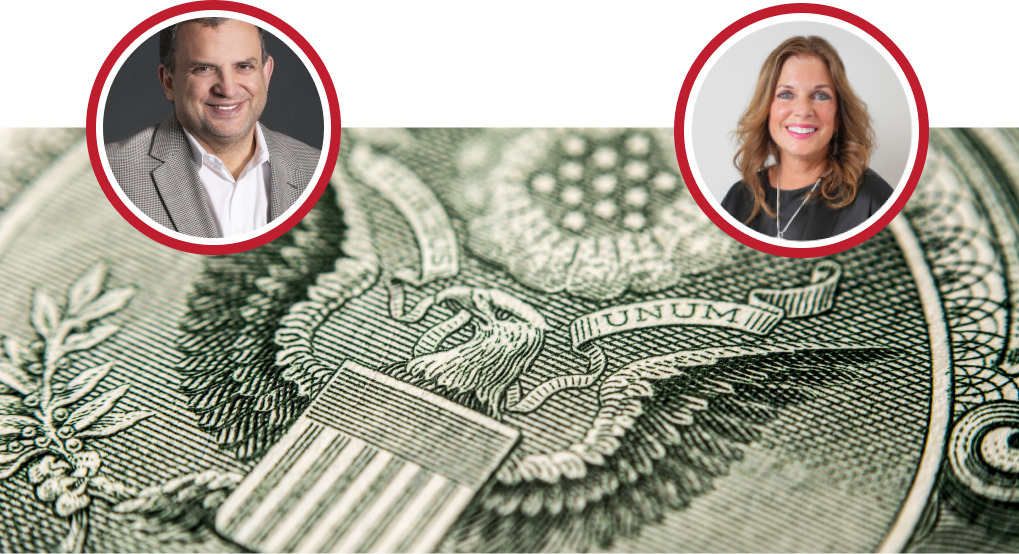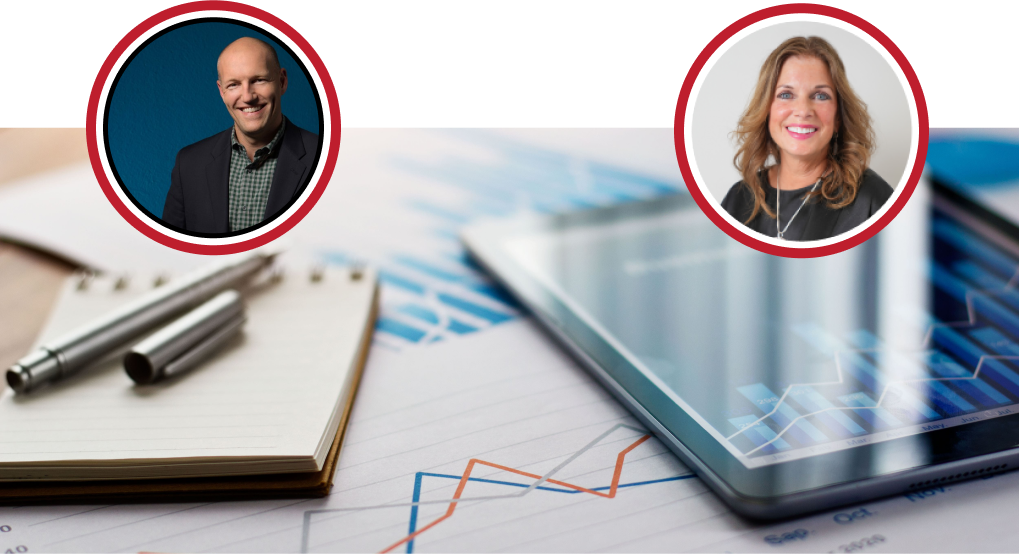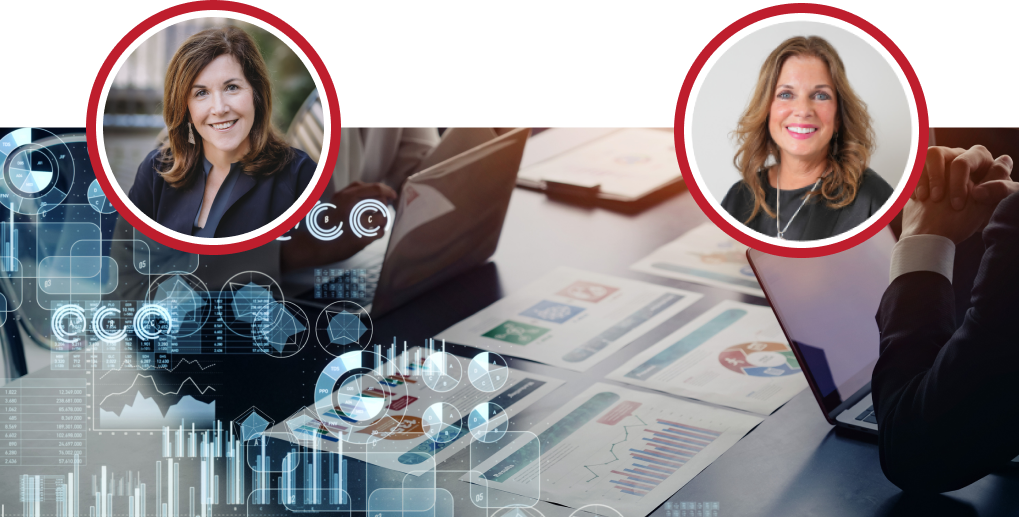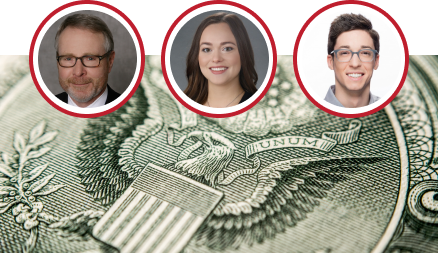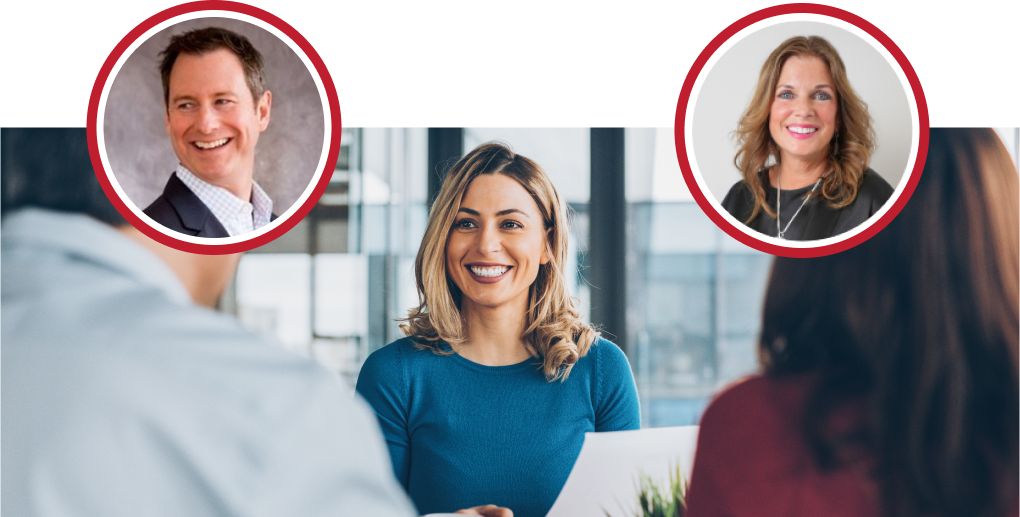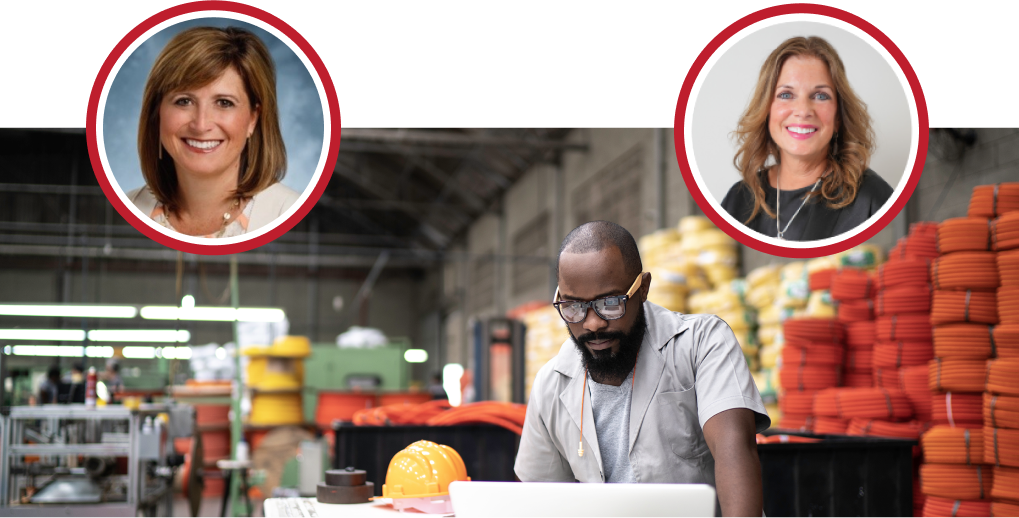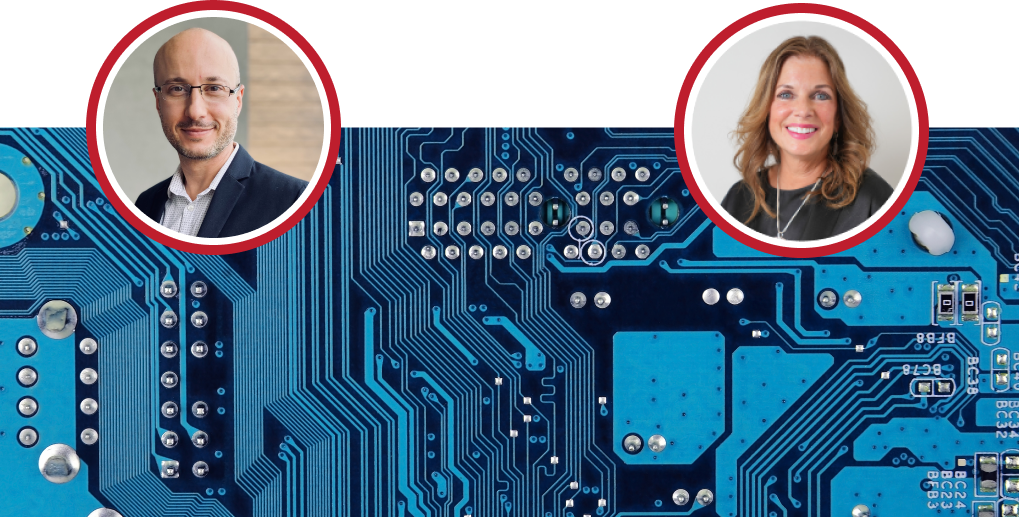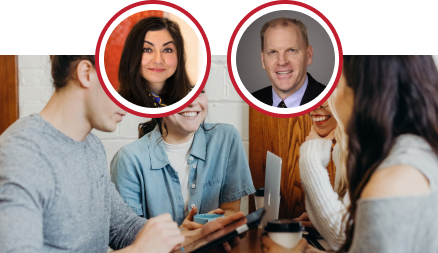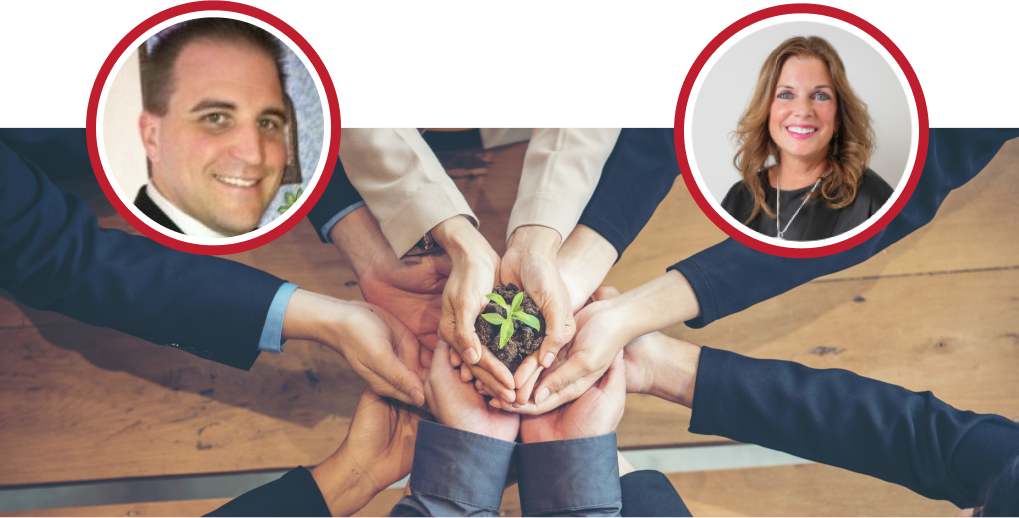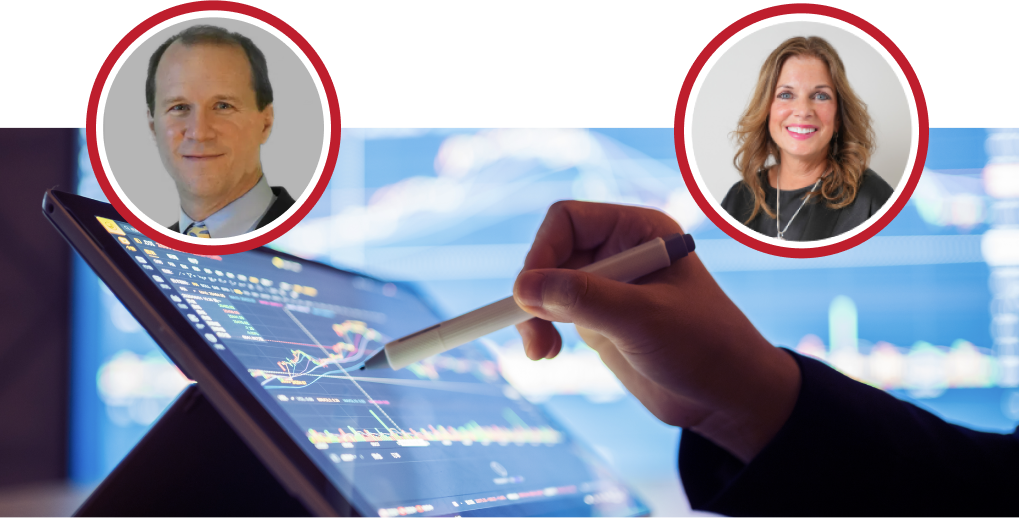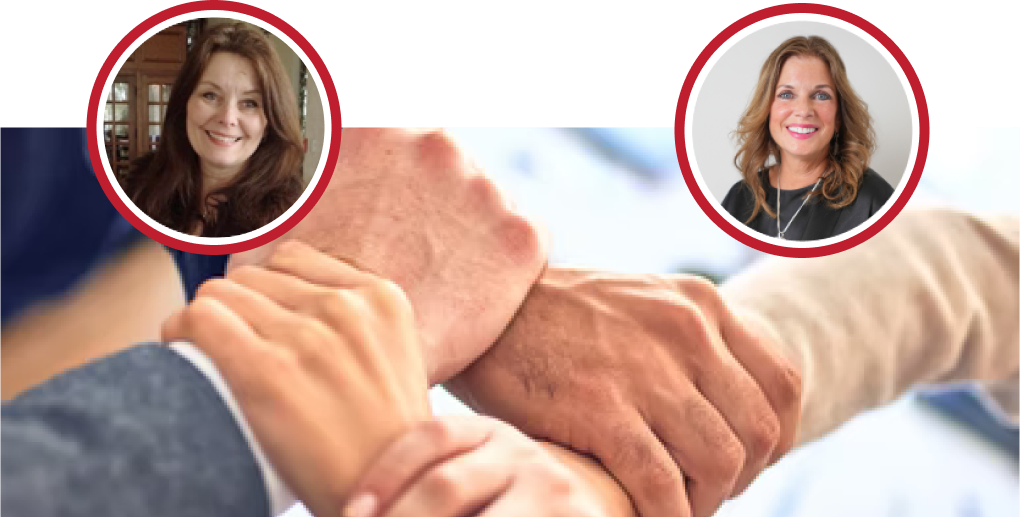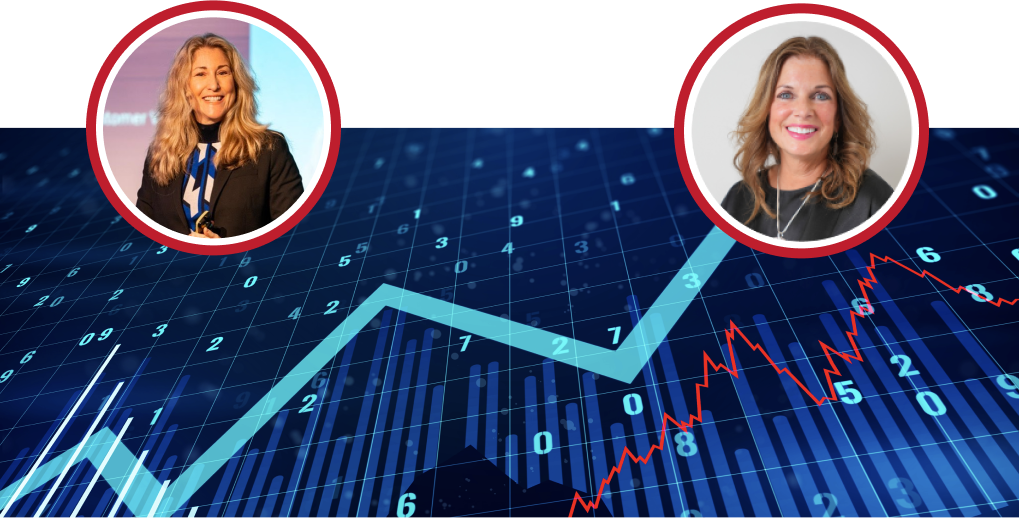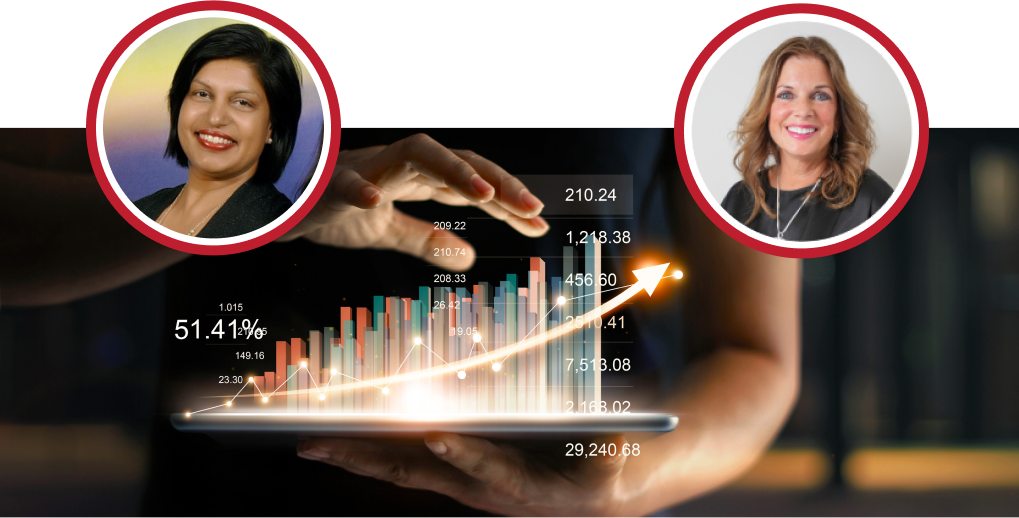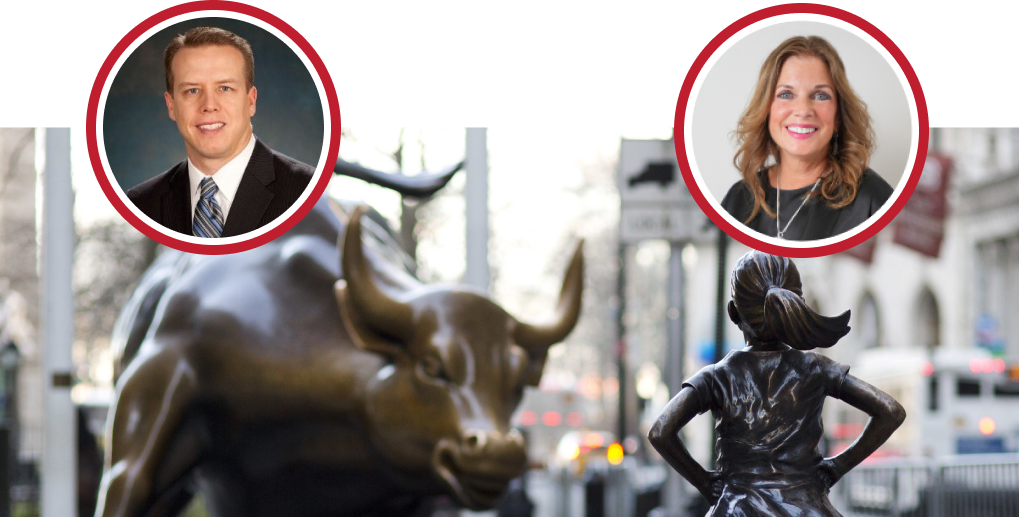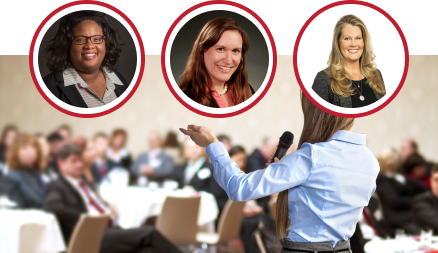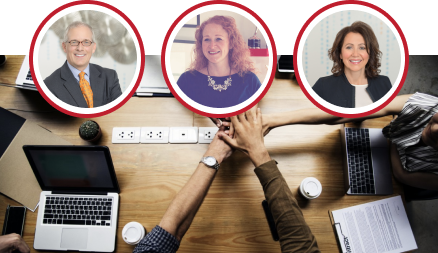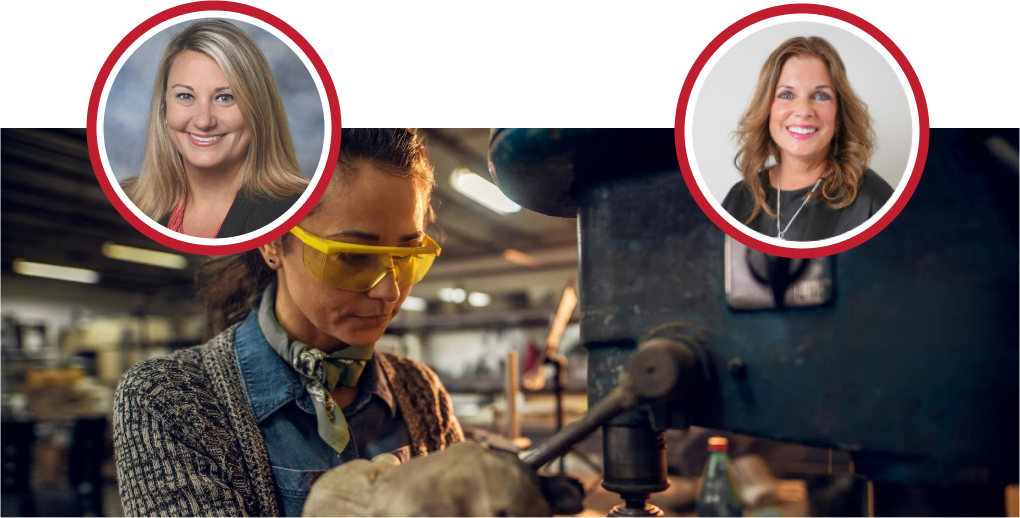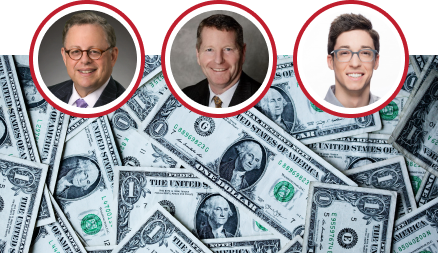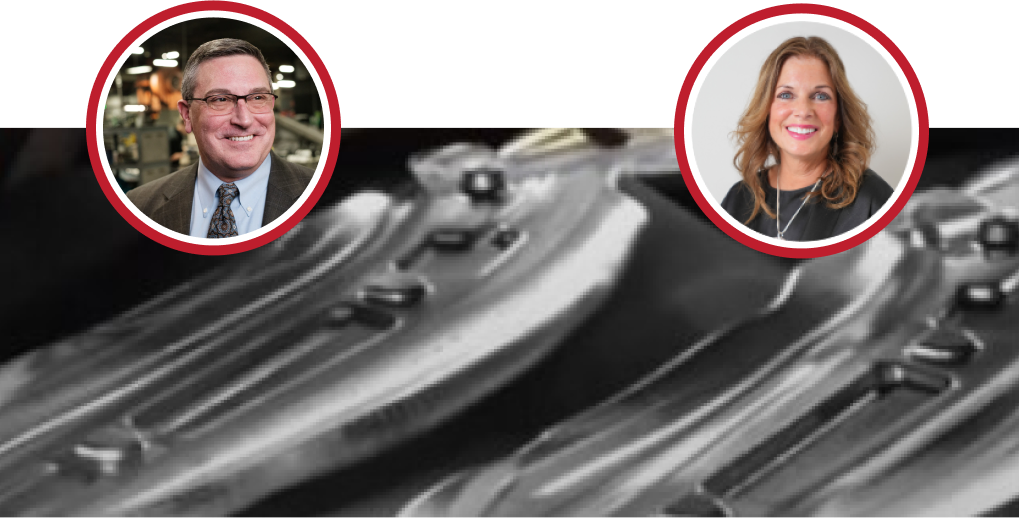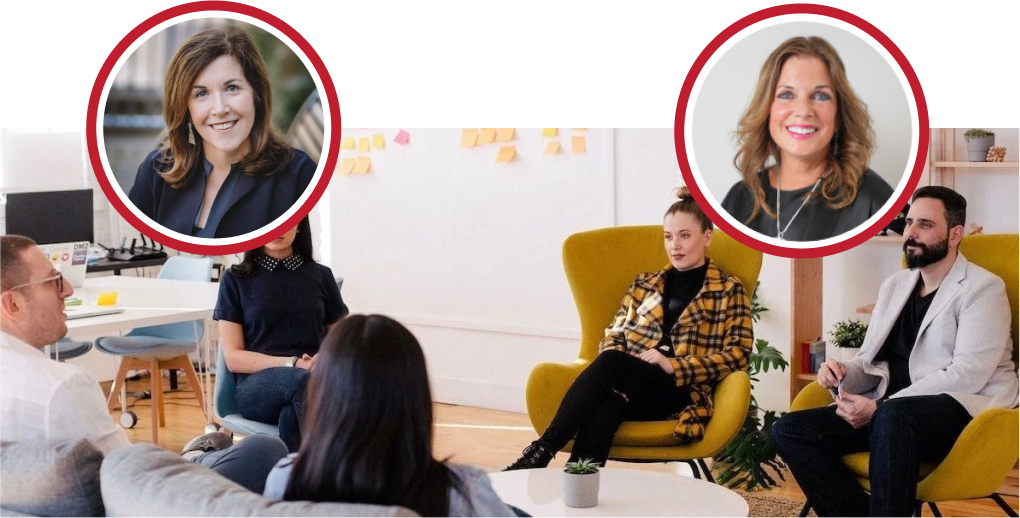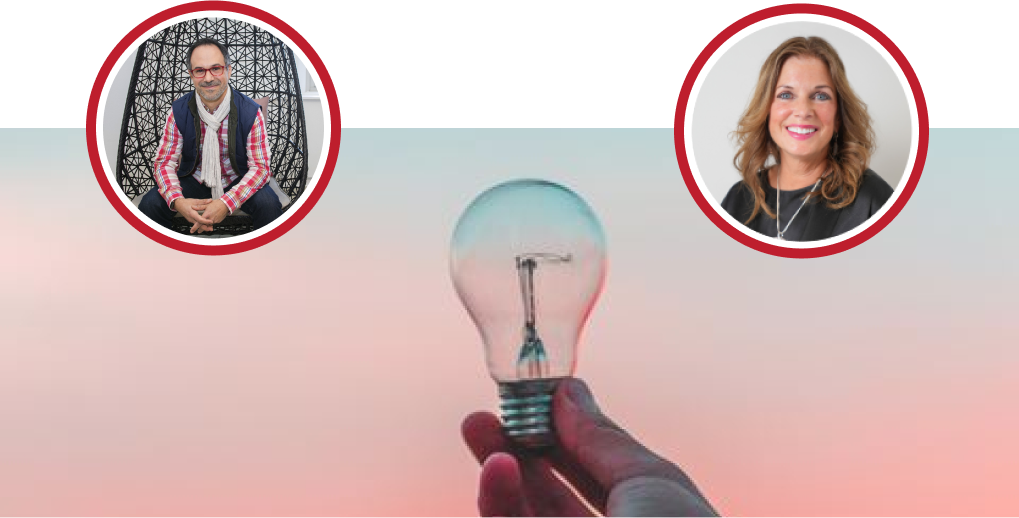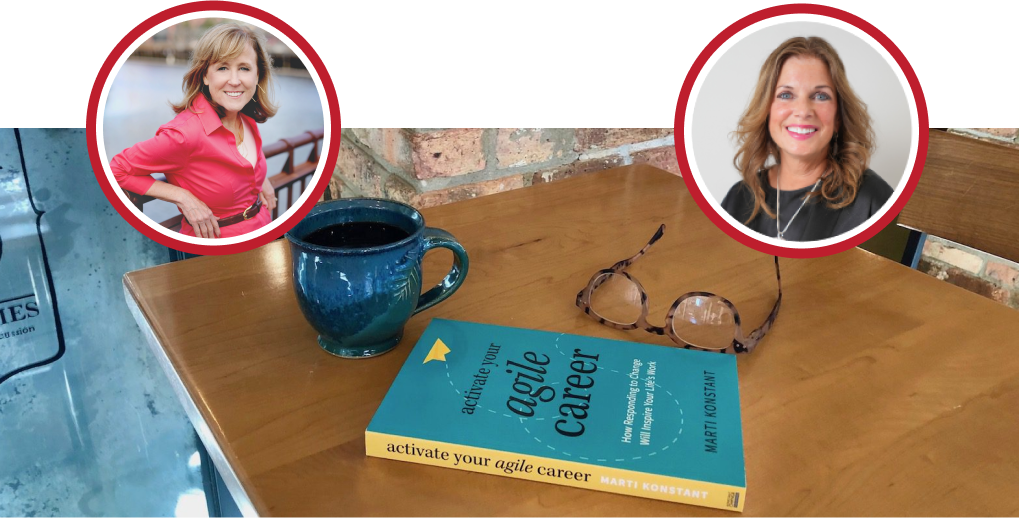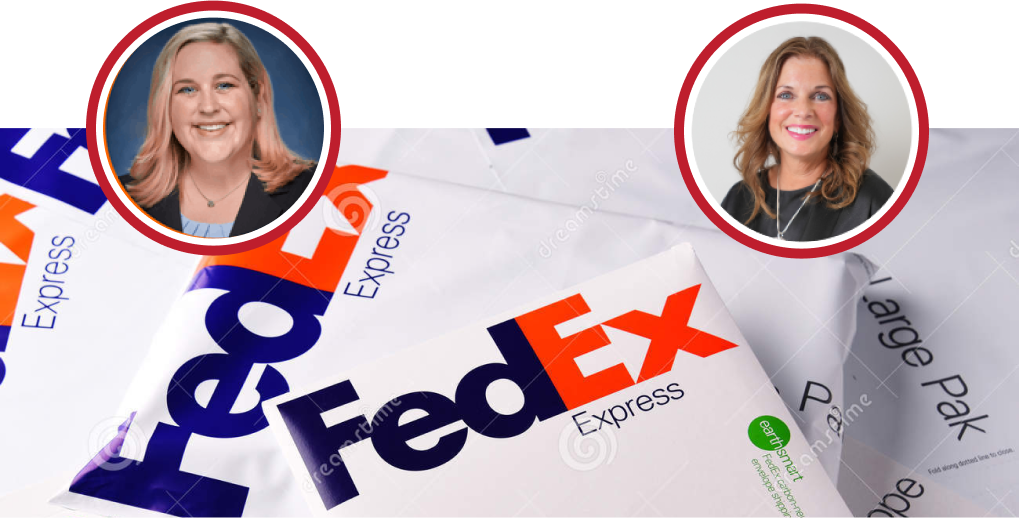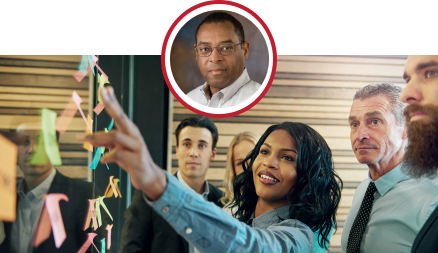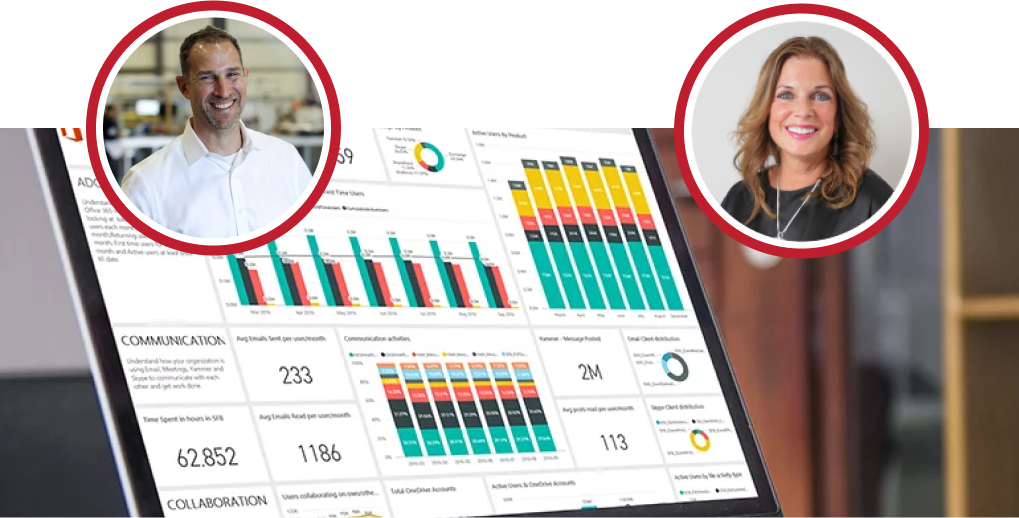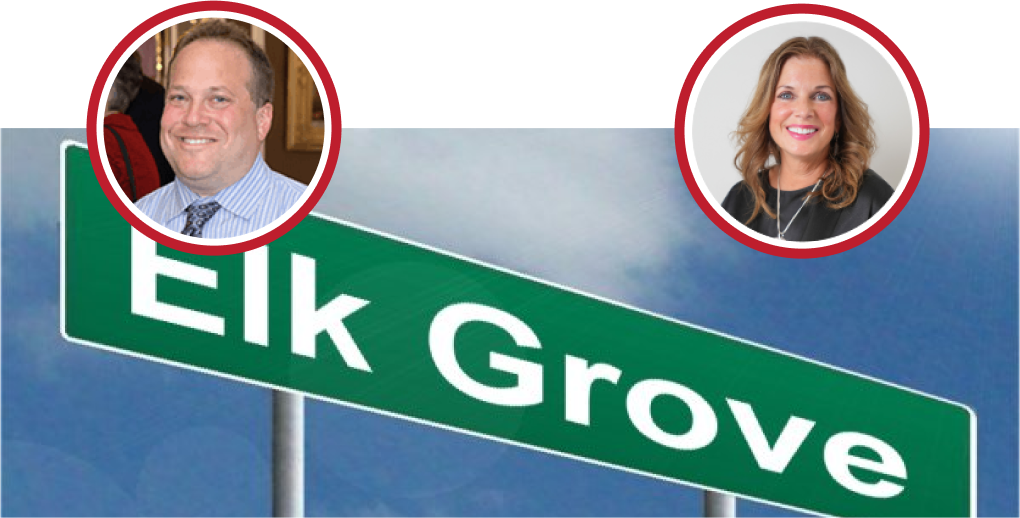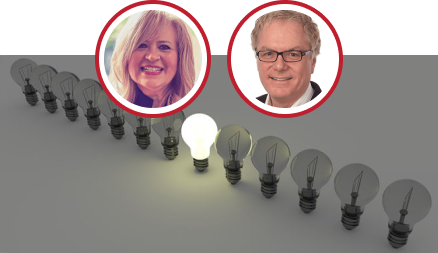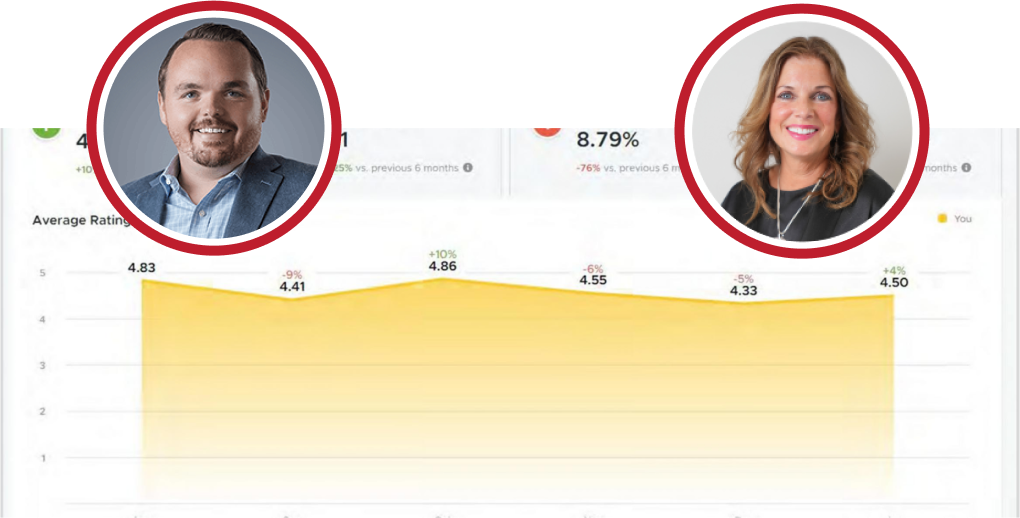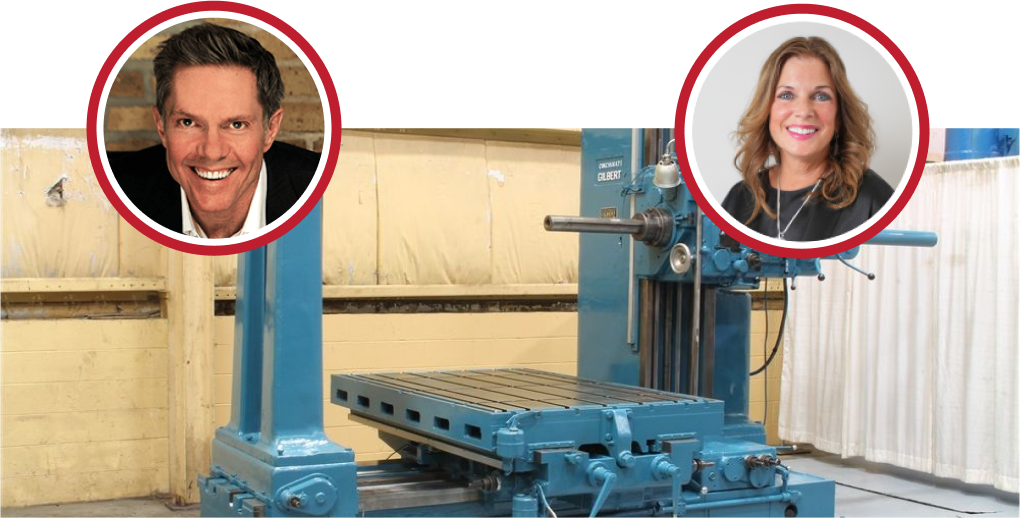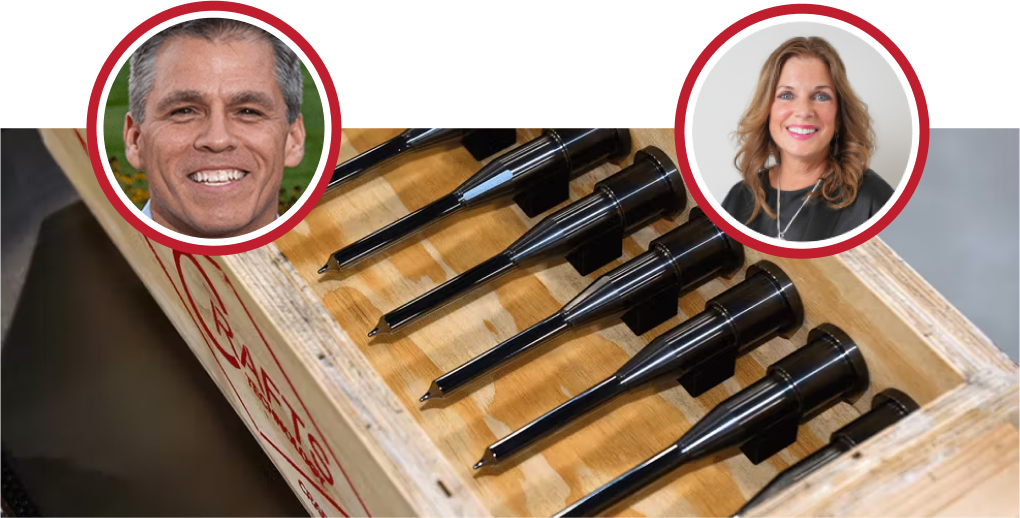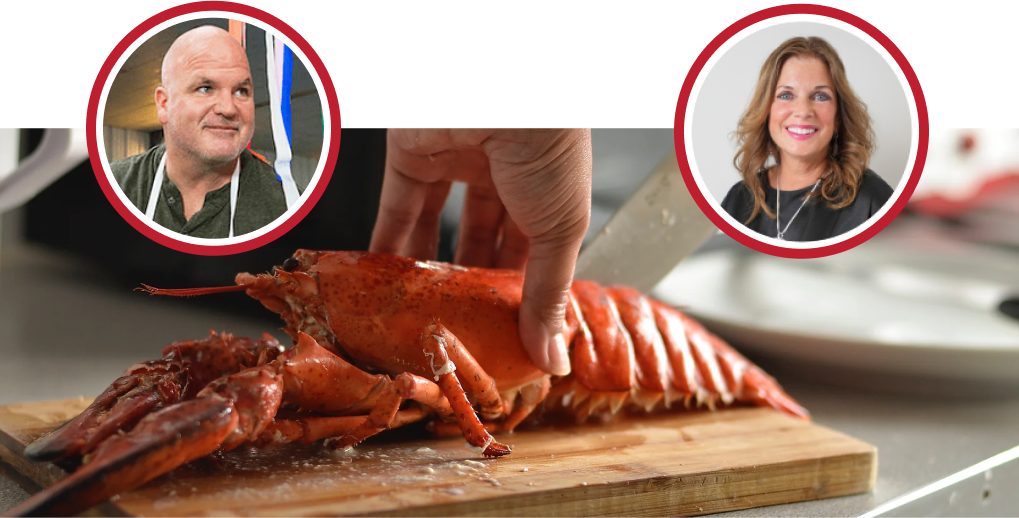Lisa: All right! Well, thank you, everyone, for joining. It’s now noon Central Standard Time. So, we’ll go ahead and get started with today’s webinar very excited to have our two speakers on here today when I’ll let them introduce themselves in just a moment. I am Lisa Behning, I’m one of your Account Managers at Red Caffeine and I’ll be the moderator for today’s webinar “Business As Unusual” featuring Phil Sponsor of Orbit Form as a few housekeeping things we do have everyone on mute this morning so if you do need to ask a question please go to the bottom of your screen scrolling over the bottom will have a menu bar up here and use the Q.A. option feel free to ask your questions throughout the presentation today and we’ll have time at the end where Phil will go ahead and answer those for you so feel free to reach out that way you can also go over to the more option and use the chat function if you’d like to speak with me privately thank you to everyone who registered for today’s session our first five registrants were very excited to be getting lunch as part of our outreach to the hospitality and the restaurant industry which have been hit so hard during the Covid-19 pandemic we wanted a shout out today to our restaurant so we have orders from Schmaltz Delhi in Naperville. Illinois. Doreen’s pizza from Dyer, Indiana. The stadium is in rolling meadows, Illinois. Jimmy Thai from Deerfield, Illinois, and then rounding out with Clavin’s in Jackson, Michigan, which I know is near and dear to Phil’s heart, and star Thai and sushi in siesta key, Florida, which is where Kathy is at, so really unique we look forward to continuing to support our restaurant industry in our upcoming webinar so stay tuned for more info on those with that I’d like to go ahead and send things over to Kathy Steele, the Founder and Principal of Red Caffeine to get our webinar started so Kathy, continue on.
Kathy: All right, thanks, Lisa. Well, I am Kathy Steele, and I am the president of Red Caffeine. Red Caffeine builds growth plans for really cool badass businesses, and we are so fortunate to have Phil Sponsor a good friend and a client; I just absolutely adore Phil, and I want to tell a quick story about how famous Phil really is that I was doing a speaking engagement in Dallas, Texas at the gathering of the games and as I was wrapping up people were standing in line to talk with me, and a gentleman stood in front of me and said I have two words for you and I thought they were going to be like a great job or great content, and they were Phil Sponsler, and so he said I saw your sticker your Orbit Form sticker on your laptop computer, and I just love Phil, and so we’re really excited to have Phil on today, so Phil tells us a little bit more about yourself and in Orbit Form well.
Phil: President of Orbit Form. I’ve been there since 2000 working for Mike Sherkey, our owner, and we’ve been in business since 1984 and we provide forming fastening riveting and automation equipment for people that assemble stuff parts we have we’re fully integrated so all our processes major processes are underneath our roof in Jackson Michigan we have 115 really awesome employees we’ve worked really hard to create a competent servant leadership structure at Orbit Form based on Mark Detering’s leading Jesus’s way, and that’s been the pretty pinnacle for us as it’s created a consistent culture and we’ve invested in the culture and man during this time right now we’re really leaning heavily on our culture because and the employees of Orbit Form to help us get through this time yeah, well you do have some great.
Kathy: Employees, so I love working with them as well, and so we want to kind of jump in and talk about how has it been going and how is the pandemic of Covid-19 positively or negatively impacted your business at Orbit Form. Well, well, I think you, you have to.
Phil: Look at it as in light of the offensive things that you can do and the defensive things that you can do in this in this situation for us we’ve chosen to go on the offense but on the defensive side you can do the normal things of watching your operating expense maybe putting off some purchases and things that might not be needed at this time but on the on the offensive side our sales organization which is pretty, pretty intense and I can talk at length about that but we outbound quite a bit and we’ve tripled our efforts on our outbound that’s the type of thing that is just been huge for us I’d like to say that I hear of other companies and they talk about not knowing what to do we’re getting 10 on average 10 web meetings or phone conferences each day that are related around either getting people familiar with our reform or that there’s an actual application and there are still applications out there to be found after this gets over there’s going to be those things that people figure out that they have to do especially with the big effort that is associated with the reshoring that’s going on right now. So yeah, and I mean you do, really.
Kathy: I know it was sort of, I don’t know if it was foresight or thinking a little bit about the recession, but I know you guys also have invested in your spare person tooling revenue stream this year, and I think that was a pretty interesting bat to put money on and I think we’re going to see some real opportunity of growth that is such a.
Phil: Great, it’s the trying to crack the secret code associated with it it’s spare parts and tools you really get a call or something, and we have very healthy spare parts and tooling business that’s associated with all the systems and stuff if we’ve been in business since 84 and some of the products that we’ve bought and brought into the business go back into the 20s type stuff so that you really don’t buy stuff until you absolutely need it but just like if you buy a car you don’t buy four new tires when you buy the car just in case or when those are gonna wear out so it’s just getting the message out there and really being intentional about the messaging associated with it and it’s hard work it’s been some heavy lifting to hit the right tone in that messaging that has people that have our equipment or our competitor’s equipment that they think of us right.
Kathy: Right, and I think diversification is going to be a key aspect of thinking differently about business as we move through these next few months into even 2021. So, I’m going to step back to positivity because I know you guys have just sort of done something sort of unique around good things, so can you speak a little bit about how you guys are score-carding positivity at Orbit Form?
Phil: Yeah we actually are taking, a look at Jake Sponsor is keeping a running list of things that are positive that are coming out of this and that is that’s kind of interesting when you think about it that you sit there and you say in this situation to pull yourself away from the fear and the being worried and stuff like that and saying how do we how do we get ourselves into a positive mindset and we have over 20, 24, 26 bona fide things that we’ve improved in the business the mega ones are in 48 hours we had zero people that were working from remotely to we had 50 people working remotely numerous paperless systems have been created we bends pretty much a paperless system but we realized that we still relied on paper moving amongst everybody bam we just put in place probably five or six paperless systems that are more effective there you have an ability to trap information so that if it’s not filled in right or whatever so a lot of variability’s been removed from our process our sales team tripling their outbound efforts we created the reshoring initiative and I can talk at length about that because I think that it’s one of the most spirited American spirited innovation that’s happening right now.
Kathy: Our rapid product development of the.
Phil: U.V. decontamination chamber in five days we had it all started with our owner Mike Shirky saying, we got to figure out a way to help, and that was his first statement, and in the N95 mask and people having to reuse a dirty and soiled mask he says why can’t we create using U.V.? Why can’t we create a way to decontaminate or greatly enhance their reusability? And so Jake Sponsor designed over the weekend the concept sketch that Mike had given him on that Monday morning that was on a Saturday morning on a Monday morning Jim Smith was programming our laser cutter to cut out the panels to create the chamber we were putting Mark Shirky created the supply line for the U.V. lights and the componentry that goes along with that so our materials group jumped into the fray and it was a really rallying process Orbit Form was working for our normal customer base a lot of medical companies that we supply and so we were there working and but it was just a total railing call cry and so within six days we created the version one did some testing all this sort of stuff and then five days later we created version two that you’re looking at on the screen right now it’s a smaller more compact unit that [Music] is proving to be better than version one so we’re actually working on a version three that’s going to be more manufacturable so we’re having a lot of interest that’s associated with this product primarily from smaller we have three major health systems that are looking at it but smaller users like police departments fire departments nursing homes where they’re kind of down the list on getting the pep type stuff and so they’ve got to have some way to be able to stretch that material further than what they have in the past one really good thing about this unit is that you get to stay in control of your mask so it doesn’t it can be right on the unit floor or it can be right in your building and you can put your initial on your mask your mass goes in your mass comes out you get back your mass control the chain of of handling for your own personal man and I know that’s a big thing for a lot of people and I just think about myself would I want to get back something that Billy Bob down the street was using I don’t think, so right well I mean.
Kathy: I want to emphasize why you can do that though I think that it’s really whether we’re reshoring and thinking about our collaborative manufacturing community in the United States and our ability to extend each other’s services you guys actually can ideate you can prototype you can build you can get it out the door I mean you’ve got all you’ve done a lot to re-shore ensure your own manufacturing capabilities fabrication capabilities I mean you’ve just got it all under the one roof so I think that’s how we’re all going to need to be thinking as manufacturers today around how can we do things within our own organization or extend into our manufacturing community so I think it’s pretty cool how you wouldn’t be able to do it if you were missing one of those components of the of the cycle I really I think it would be really hard the major units was associated with this was our ability to fabricate the chamber to have the electrical controls engineering in-house and the mechanical engineering capabilities in-house and then also a strong purchasing group that’s here so we more often than not have been environment where lead time.
Phil: And being able to get something done fast, we really made the owner of the business has made some Mike Shark has made some huge investments for us to be able to do that on-site, so it’s been a strategy that’s been in place for since probably 2004-2005 and decisions that we made six and nine and ten years ago on certain aspects of our business have come into play to be able to do this in a six and a five-day turnaround process. So yeah, it’s amazing, really amazing so.
Kathy: I’m going to circle back to something we kind of you kind of started to talk a bit about, and we’ve both been through recessions before, and we’ve been referencing a Harvard Business Review article that talks about certain companies that are not only survived recessions but they’ve actually thrived, and they’ve got they’ve kind of used some offensive and defensive strategies offensive is reducing costs labor reducing the efficiency or increasing efficiencies and optimizing and then what with other initiatives towards developing new markets like your medical like in advancements and or investing in new assets or both so let can you talk a little bit about how you guys have approached those types of strategic moves in a little bit more detail than you did a little earlier sure I’m gonna probably, focus more on.
Phil: The offense of it’s easy to say that there’s we aren’t, we didn’t we don’t have it in our strategy to lay people off we’ve invested way too much money and way too much time and effort into the people that are at Orbit Form they’re like family and I know a lot of companies are like that and that sort of stuff but it’s the, it’s, it really is that’s the one thing I’d say is what’s the offensive side of it is that you really have to I for all business leaders that are out there that are listening to this they have to recognize that how they act and how they behave and the actions that they have coming out or during this process either strengthens or weakens the team you either strengthen and live by your purpose and your values and show that on a regular basis even when the decisions are extremely tough and that they they’re not tough to know what to do because your purpose and your value should be leading you but being consistent and living to your purpose and values are huge I think that people that don’t do that or whatever you need to be asking yourself and washing your decisions across that I think employees that are working at places where leaders aren’t living their purpose their stated purpose and their values that after this all gets over that that is going to be remembered and that’s the type of thing that is going to have people searching out companies that do live by their purpose and values but here’s the thing that I worry about or that I see is that a lot of companies are going to try to do this on the backs of their employees payroll and they’re going to look at sales and say well sales can’t go out and travel and meet customers and stuff like that I don’t need so many people in sales right now it’s the worst thing you could absolutely do you need to buy Jeb Blunt’s book fanatical prospecting you need to tear that book apart chapter by chapter and invoke those tenants that are in that and if you have I firmly believe that if we could we could have 115 people fanatically prospecting for Orbit Form if we needed to so it’s the type of thing where if you’re going to a day lost in in prospecting is you lose a week a week lost in prospecting you lose a month for your pipeline being filled and so this is the time to double triple down on your sales and marketing efforts the on the offense the creation of the medical decontamination chamber was huge attacking the aerospace industry by joining the aerospace industry association of Michigan is getting us into a whole different we’ve done aerospace projects before but we’re not really tied into the supply line like we should be and so we’re working hard to figure that out I’ve talked about our tripling our outbound efforts also something that probably is a little strange but we’re Contin we have something called the intentional career growth spider graph process at Orbit Form and we have people right now that are working on that to enhance their careers their skills and abilities in a in a pretty systematic manner and so we’re getting some feedback that people are that are working on that so that that’s good to know yeah, I mean I love.
Kathy: Your spider. I love your spider Graph Philosophy. It’s really something; I know you’re going to share out your contact information. If anybody is looking at how to create some professional development, they should tap you for sharing some of that thinking; what you guys have done it’s just it’s fascinating and really cool, and I couldn’t agree with you more about culture, and we’ve talked about that it is a lot of money it gets invested in culture and building culture but this is the time that those types of investments pay dividends and so it is tough to quantify it sometimes, but I think these are we’re going to have some outcomes over this next six months that are going to really quantify our the investment and culture.
Phil: So, we’ve talked about some of the things.
Kathy: That has been going extremely well. Why don’t you tell us what is your biggest challenge right now? Doesn’t seem like sales are doing okay in operations and financing. What other challenge did you prep?
Phil: Me on that question, and I gotta tell you that it took some real thinking to go through that and actually say okay, so what should we be fearful of? I wrote myself some notes, so the idea is an, I think, across the sales operations finance staffing. I think we’re gonna be okay in in in a large part I think the biggest thing we fear and the biggest thing that we don’t know is if there’s a large recession or a big depression and that just that just creates a whole lot of unknowns of course down to what level that all goes and that sort of stuff so we’re doing things right now to brace ourselves for the unknown the creation of the Orbit Form decontamination chamber was born out of a true genuine desire to help you couldn’t help but look every time you got on them the national news and they were talking about PPE shortage and having to use mask for several days and stuff on that order so that just resonated throughout Orbit Form and that really was those were the words Mike Sharkey was using when we were trying to decide to go ahead and do this that’s proving to us to be we’re actually creating a separate company called Orbit Form medical to house several other ideas that we have we can manufacture air cleaning an industrial or commercial style hair cleaning system that is already in use in hospitals and stuff like that so it kind of its genesis was a sincere desire to help and we’re taking it to a new level and the biggest thing in our purpose is to our stated Orbit Form purposes to create ever-improving results and security for our employees investors and our customers and this whole Segway of creating Orbit Form medical is a big way to help do that yeah, I mean it is.
Kathy: Incredibly great. Incredible opportunity, but it also will bring a lot of good as well, so it’s great to be able to kind of check a couple of boxes, and I don’t think anybody should be shy about innovation or things that are going well. I mean, we need to hear this is why we’re doing this exact webinar is sharing what is going well and what we are feeling optimistic about, and so you’ve got some really big thoughts on you to know what you see our future around reshoring I can remember standing in your facility a few months back, and we were able to like not to be a social distance from each other, and you and I are talking about and Lisa as well talking about reassuring so why don’t you share what you’re feeling most optimistic about right now?
Phil: I will try to do that. Could I just say one thing that an employee said about this whole process that we had, and they sent it, and they wanted to stay anonymous, so I just I’m respecting that, but this is kind of a summation of it? She’s he’s they said we are different here at Orbit Form. We made a choice to keep our people employed. We work to make ourselves essential, and she said we’re helping by designing and supplying the Orbit Form decontamination chamber that was unprompted, and it came from somebody that eight years ago when they joined us that you would have never thought that those words would have come out of somebody’s mouth or whatever, but it’s just the whole idea that innovation and figuring things out is probably one of the biggest things that’s really awesome I forgot your questions.
Kathy: So, I’m talking about optimism. What are you feeling most optimistic about, and it’s hard not to feel optimistic when you get that validation from your employees? It’s so I saw that comment come through on a shared email, and I just, it just makes you so love being able to work with a company like yours. I think the well, thank you.
Phil: I’m most optimistic about the re-showing and we have created this is something that came out of the out of the thinking of what so, what do we do and we have an awesome level of customers that we supply very innovative making good products and we really that kind of goes back to in 2010, 2011 when we terminated customers that didn’t share our principles and that actually was like a 40 hit to our revenue to go ahead and do that so it took there was some risk and then there was some courage to go ahead and do that so now we have for the most part our customer base wildly principled very innovative and stuff like that so we’re getting asked to help in a trusted advisor type manner how people can bring certain products and processes back to back to their to their companies and when they left they terminated all the people that were associated with manufacturing and when it went to China now they’re coming back and they need to have over the last 30 years a lot of things have changed a lot of improvements and continuous improvements happen there’s new ways to do things and so if we can’t satiate or satisfy the requirement of what they have of course if it’s forming fastening and riveting and automation we want to help obviously.
Kathy: But even with that, we want to we are.
Phil: Scouring our customer base so that we can have a stable of customers in certain processes that we can refer people to and give them background information on them and how they do business and everything like that in a true bob berg go-giver type manner, right and we’re finding that to be.
Kathy: Rather.
Phil: A successful, trusted advisor type position even if there’s nothing in it for us and so, but companies are really starting to innovate and design their processes is to sit there and say they do I think another pandemic could happen. Do I think that China could cut off our critical parts coming to our company? And that sort of stuff those are all starting to become affirmatives, and so now there’s a true cost to having stuff offshore or out of your control, and so we’re helping people come up with the best processes, yeah absolutely, I mean that I think that.
Kathy: We work with so many manufacturers, and we’re having those conversations around the supply chain and how we are. we might be fine right now, but what, that, what is that going to look like in six months when we really exhausted access to certain component parts and how do we help connect people that can build and get orders with some, onshore contract manufacturers so really exciting time to be in the maker space right now well I’m going to ask you a personal more personal question about leading through something a crisis like this I mean I think we’ve all probably had our major ups and downs in business, but this is a pretty magnanimous time to be a leader and so how has it changed you or what has been that experience well how has it changed me.
Phil: Well, I think the, I think it’s more than an affirmation of just how special the Orbit Form team is and how the senior leadership is at Orbit Form and then on top of that we took a bold move about two years ago to actually create what we’ll call metal management at Orbit Form and those 14, 15 individuals have just stepped up to the plate before it was just senior leadership and everybody else at Orbit Form and it wasn’t as we were growing it just we just didn’t have in touch with everybody the way they should be so it kind of said we gotta step forward and create this level of management this leadership that understands our values and leads like us and there were there were people that said that technically they were they could do it technically and stuff like that they didn’t want to do the soft side of the job and the soft side is that you love and care for your people that you’re responsible for in a true manner that you care about their careers you care about their growth you care about their lives and their feelings and stuff like that so we have that team, so we’ve lean we’ve, I think that’s the I get a little emotional when I think about it because I feel like we’re really extremely blessed and but the team deserves our absolute best version of ourselves we have to play to the highest level that we can doing these there’s people that are extremely worried and frightened on almost every basis associated with this this virus and stuff like that and if we’re not caring if we’re not loving for our folks and we’re not treating the plant and the business we have 50 people working remotely and 65 that are still working in the plant and stuff like that if we’re not thinking of that as those are our though what are what if those were our four daughters that were in that plant working how would we want to be and that is what’s driven the requirements and recommendations and suggestions that we have in our safe behavior and safe workplace playbook yeah well I want you to talk a little bit about that but I do want to just also say I thought it was so cool that your internal team sent some pictures back to the the people that were working from home around things that were getting done in the plant just to kind of keep that culture vibe going even though you guys were 50 of your workforce was separated from the other fifty percent that’s it’s just kind of it’s kind of cool yeah and we’ve so as a senior leadership we have ours we started off when the crisis we’re starting meeting every day and we’ve broken that down to three days a week we had every day community communications going out to everyone and the feedback was we love what’s being said and the communication is just not so much of it so they asked if we could only do it two times a week but everybody we have 115 people and we have everybody has their own computer at Orbit Form it’s a technical company we have to be fast so we’re sharing files and doing all that kind of stuff on a regular basis so even if you’re you’re in machine build and stuff like everybody has their own their computer and so we can send out an everyone email and it’s there waiting for you when you come into work so we made that was a big investment and we’ve supported that investment and it’s paid off in dividends on a regular basis yeah well I do want you to mention some of the key things I what we’re finding across a lot.
Kathy: Of our clients, mostly in the manufacturing because most of our clients are still considered essential this kind of new playbook for business, I don’t think anything anybody is naive enough to think we’re going to go back to how we did business prior so can you talk about a few of the key components of your playbook for that return-to-work experience, yeah and we can.
Phil: We’re still we’re modifying and updating it because it’s a pretty dynamic thing, but we’d be willing to share the tenants of that playbook for anybody yeah that wants that it goes all the way from just three basic things. What happens if I’m sick at work? What do I do? What happens if I find out I’m sick at night? What should I do? What happens if I’m in close contact with somebody? That’s suspected of having it so we map out those things we map out things just we have a chart of how we go through twice a day and clean surfaces and what that is and we’ve asked for a lot of input from everybody at the plant there were places that came up that you kind of hit yourself and go yeah that’s some place that we should be doing but just some awesome inputs from that how we’re going to that we’ve got P.P. stuff that’s available for folks we’re not forcing people to wear it but it is accessible standard modes of operation of how the hygiene side of it and all that kind of stuff and then up to and including there’s some people that are this was not on our radar that there they see fellow employees that either don’t view it as serious or whatever and they’re not adhering to what’s been put out there and what do I do in that situation so we’ve kind of mapped out for people here’s what here’s how you should approach that here’s how you should do that and that’s those are just things you don’t think of on a normal basis but we’re trying to answer all the questions ahead of time I think that is we’ve seen the businesses that have been a bit more proactive really just do well and when they haven’t been as proactive it’s been it’s been challenging. Oh, I think it would be really valuable if we could share out the ten tenants following this or if you want to personally share those out. So, we, I think I’m going to be able to ask one more question, and we’re going to turn it over to the attendees to be able to ask you some questions, but this is one thing I’ve always sort of admired about you and that we haven’t seen this done very well in many organizations, but it is you’ve been working on.
Kathy: Timeline of your transition out of the organization and so I can you speak to that a little bit and how maybe some of the sort of what’s going on now has you’ve learned what you’ve learned just in the recent two to two months about that thinking about that timetable and where you’re at sure it’s.
Phil: I’m gonna retire in, within three, within three years, and so, I made a decision.
Kathy: To have a purpose-driven retirement.
Phil: And so then you start to sit there and think about it because you do have time to reflect in during all of this that’s going on so I want to have to break it down into simple percentages I want to have 70 of my time on family and focus in that arena and then then I got that 30 and that 30 is we’re looking at acquisitions right now an investment group looking at acquisitions where we could my role in that process besides being an investor would be an executive coach to the main leaders of those businesses and we’re looking at competency in leadership we’re looking at do they have a servant leadership persona associated with that are they the type of people that would love and care for their folks in in a competent manner and then also would they want to create an environment that is a continuous improvement full of courage type environment or persona and I think that I think that that will be that’ll be purposeful because great leadership provides security for the folks that are working at their business and We at Orbit Form, we pride ourselves on that I I’d say that’s probably one of the biggest accomplishments is we’re a continuous improvement environment and we love and care for our folks and we want them to feel secure. Yeah, so that’s what I plan on doing, and yeah, we’re looking at businesses right now.
Lisa: Yes, so you and I both have a similar Philosophy about retirement where we’d still be working, so at least I see a lot of questions coming in, so I’m gonna turn it over a lot of questions. So, which I’m very excited about. So, Phil, I’m going to start you off with the just pick Lisa, just pick the Easy-ones.
Phil: Of course. I actually think great.
Kathy: Questions and almost all of them.
Lisa: I could speak for you because I know how passionate you are about several views, so the first two questions I’m actually going to group together, so we had a few people curious about your UBC DC chamber, and a little specific they were wondering what the cost was running on those to purchase one and what does the cycle time look like? So how? Oh yeah.
Phil: Okay, so it can hold ten masks per cycle, and we call it the 10 for 10, which is a 10-minute site, a 10-minute cycle time, and then the cost, where U.V. lights, as you could expect, are going through the roof right now so the cost associated with it is 5685 okay and then.
Lisa: Plus, shipping on top of that because it’s a precision piece of equipment.
Phil: So, we’ve designed some third-party shipping crates or containers that are going to protect it in the shipping; it’s a stainless steel polished stainless-steel chamber which you wouldn’t think about it until you get into it, but it’s highly reflective and so [Music] the reflectivity of the inner walls.
Lisa: It really helped to decontaminate the mask also.
Phil: So, as you can see, those the trays go down into it, and they’re getting bombarded with the light on both sides on U.V. on both sides all right, so we’re going to switch off.
Lisa: Of the UV CDC and then go more into some of the business practices that you mentioned today, so one of the things you mentioned earlier on was when you had to terminate some of your clients that it was a 40 decrease in revenue but very much needed what really led you to that decision what were the principles behind it how do you? What were the results that came off of that situation? Obviously, there was a big risk, so what was the reward portion of it?
Phil: Real quick story. So, we had people companies that were not principled companies they lived in the world of we win you lose and they didn’t consider it a victory unless you did lose and so we finally woke up to that equation but at the same time once again the owner of the business Mike Sharkey I mistakenly went ahead and signed up for the assembly trade assembly magazine trade show held in the Rosemont by O’Hare airport in Chicago and then I told Mike Sureky that we were doing that and he says no you’re not going to do that and so he says well he finally came around because we’d already paid to do it so we were going but he he said if you’re gonna go you’re gonna you have to show something new each year and so in the five years preceding the show we had two new products or greatly enhanced products in the seven years that we’ve done the show because of his edict that something new has to be shown we’ve had 35 in excess of 35 new and some of the products that for our size of company have provided millions of dollars of revenue so it was a pretty big thing what we did with those customers that were insatiable and that we ended up firing we were working 24 7 to try to satiate and so we took all that energy and we applied it to our new product development cycle and what that ended up doing was creating revenue streams of standard products that will go on into Orbit Form history far in advance or fire in excess of my time you’re at Orbit and it started because of the major decision to say that we weren’t going to take it anymore from these people that were godless and then we backfilled it with innovating and putting the energy into Orbit Form new products I can always hear that story over and over again I love that story. So amazing. So, I think going off of that too is a follow-up question to it.
Lisa: knowing that obviously, a lot changed during that period that you’re putting energy elsewhere, you also talked about adding in your new management tier, so how what did the process look like? How did you identify the right people because I know along the way there were some not right people? What did that development process look like? How did you help cultivate those leaders to exemplify Orbit Form’s values? We’re about three years into the EOS.
Phil: Traction process and in the self-examination through the EOS process, we came to understand that we were shortchanging the people in Orbit Form by not having that mid-management level, so that’s the genesis that’s actually the strategic genesis side of the creation of that how do we choose or that we laid out in pretty clear terms what somewhat of a position paper that was written by me that stated this is what a leader at order form looks like and everybody that read it there was one person that said I don’t want to do that and then the other people said yes, I can do this and so even though they might have been on the low end of the scale of that with the intentional career growth it’s been crafted such that that it helps them in the areas where they’re a little short. All right. So, next question we’ve got.
Lisa: Three more I want to cover today, and we’ll see if any more come in, but one of your comments when you were talking about sales, as you’d mentioned joining an association as a way to expand your market reach, could you talk a little bit more about how that worked for Orbit Form yeah Brian Wright, our VP of Sales.
Phil: Pestered me for probably a period of time, and then he said, we’ve really got to join this group. It’s 80, 90, or more aerospace manufacturers in Michigan, and Michigan turns out to be within the top three or four states that manufacture aerospace. I mean primarily driven off of our automotive heritage and skills and capabilities, and so AIAM is the organization and so what we’ve been doing is we’ve been able to make some connections, or actually, it seems strange, but there’s another organization and a hand tool [Music] organization that they’re asking us how can the decontamination chamber be used for hand tools and so there’s your kind of just on faith, you sit there and say okay this is positive this is the right thing to do and so you make a decision to go down that path and then all of a sudden you trip into some of these opportunities there we go we’ll take myself off mute.
Lisa: There is so a second to the last question, and I feel I know you already have the answer to this one, so you mentioned the fanatical prospecting. Do you have any other books that you love and that you’d be willing to share in your recommended reading list?
Phil: I do and I’m going to machine gun them and I’ll make sure that you guys have that for it but before we do that I really am just dying to say this one thing you had a question here Kathy in pre in prompting for this processes who have you leaned on most and I just want to say my there are three major elements my catholic Christian faith I’m gonna say my wife Mary who helps me out on a tremendous amount of clear thinking time and stuff on that and very supportive our orb reform senior leadership and our Orbit Form team so those are people I’ve leaned on so some great books I’ve read recently Atomic Habits by Jim, Clear Things Clear Unlocking Greatness by Charlie, Hari Red Sea Rules by Robert Morgan and something that’s awesome for any leader that they should be doing is a great book which is based on science is culture code by Daniel Coyle I love books that that are that take the human side of it but they back it up with research and it’s just not some one person’s opinion and all three of the Atomic Habits unlocking greatness and culture code are all based on psychological research and stuff that’s based on facts I got to mention Jeb Blunt’s new book and it’s called and for anybody that’s doing B2B selling is he has put into one document one book all of the elements about great negotiations and I think it’s become just as fanatical prospecting became a bible at Orbit Form for prospecting and outbound work and stuff like that is that that book has it all in one cover so we have these people as Mike Weinberg’s the Jeb Blount’s the Anthony Iannarino people that have been helping us from a standpoint of the books that they’ve written and stuff but then we got to a level in sales where on a scale of one to ten we started off at four we got to seven and we wanted to go to eight or eight point five and we’ve enlisted the help of colleen Francis to take us that let’s I don’t think we can get to nine I don’t that might maybe ten years from now we’ll get to nine but we want to get to 8.5 and she has been with us as a sales coach for Brian wright and the Orbit Form sales team starting in January and we’ve made some great strides it’s that idea that we knew that there was something missing and we didn’t have it inside our walls, and we had to get it outside to in and we found colleen at outbound 2019 held in Atlanta, so anyways.
Lisa: So, as we go to the final question here, Phil, which is what is one thing you’ve learned during covid19 that you’re going to keep? And for those of you on the screen, I’m going to switch over so you can see Phil’s contact info in case you didn’t have any questions, but I thought that would be an appropriate question to wrap up today, so one thing you want going to keep doing that Orbit Form.
Phil: Well, I’m going to cheat and do two things the first thing is that the creation of which we would have never done the creation of our safe behaviors and safe work place playbook that was that would have never been on our on our agenda and now we’re doing it and we’re taking people across this country are going from a self-awareness of their hygiene and stuff that’s associated with it that probably should have been in place anyway so we’re putting it into a into a playbook where we sit there and say these are the rules of engagement when you’re at work and we want you to share it with your family the second thing is that I would have never thought that we would have been a work from home or remote type company we are going to have some portion of our workforce of our front line our front office people having the flexibility of working remotely that’ll probably stick and we’re working on who is that how much is it what do we do all that kind of all the things that the questions that come out of that that’s associated with it and why is that so important because we never viewed ourselves we’ve had chances to get superstars but they didn’t want to move to Jackson Michigan I love Jackson anyways but now with what we’ve learned in this process and this is going into some of the good there are going to be superstars that are going to be in I don’t know Denver somewhere like that and that sort of stuff that are going to be able to be part of the Orbit Form team because we’re going to explore what it means to because we need, we need high-powered folks and so that might be open up a whole new channel that we never had before so those two things.
Kathy: So great.
Lisa: Thank you so much, Phil. Thank you for your questions. For those of you that tuned in today, as you can see on the screen, feel free. Phil has his email up there, so just reference unusual on the subject line, but if you have any follow-up questions for him, you can also connect with him on LinkedIn as well, and we’ll make sure Phil’s books and his top tips and tricks are included in the follow-up that you’ll receive along with the recording of today’s session.
Phil: Thanks, everybody.
Lisa: Thank you, and so for those of you; if you enjoyed today’s content or know someone else that would, please let them know our next “Business As Unusual” webinar will take place on May 14th. We’re going to be featuring Mark Murrell. He’s the Chief Curator at getmainlobster.com, and I’m sure some of you are thinking, why would I want to talk to a food manufacturer? Obviously, food is very critical during the Covid-19 crisis but put yourself in the shoes of what would happen if your business today had ten times more revenue than typical. You had a higher staff, but you’re also in a feast-to-famine mode of not having inventory or having too much inventory. So, I think this is universal to anyone across the board for those of you who have gone through acquisitions and trying to culture for those of you that are just struggling with a workforce right now of how do you hire employees during a time period like this and on board them when we are in the midst of a pandemic mark has a great story to tell of how they are surviving and thriving so hope you’ll stay tuned registration information will be later available later on today, so we look forward to having you back on May 14th and hearing from Mark and the great story of getting made Lobster.
Kathy: All right, thanks so much, Lisa; it’s been great. It wouldn’t be a Red Caffeine event if there wasn’t a little bit of a dark barking in the background, so as far as that duke has, how to get his two cents in during this.
Lisa: Yes, so thank you, Kathy and Phil; as well, for those of you that have any other questions or perhaps this is your first-time hearing about Red Caffeine, feel free to connect with us at connect@redcaffeine.com, or you can go follow us on social media but look forward to seeing you all back on the 14th and talking about food which is one of my favorite things as I know it is Kathy’s as we.
Kathy: Yeah, thanks, everyone.
Lisa: All right, thank you, everyone. Enjoy the rest of your day.
